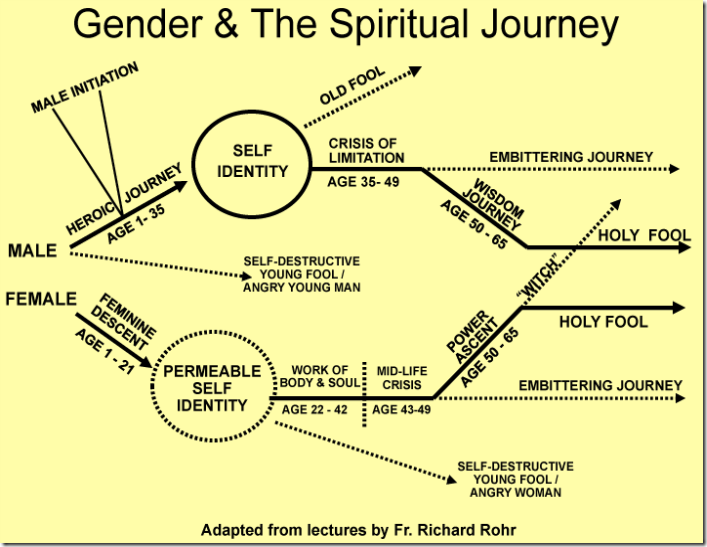I can’t find one. I have been looking. They are frighteningly hard to find. (I started a couple)
Still, it’s a trend I want to talk about. I see more and more churches holding "Bible studies" where nobody brings their Bibles because the Bible is not opened, but instead, one verse, or theme from the Bible is pulled and expounded upon by a modern author, and the text of that author is studied with discussion questions on a separate sheet of paper. Another option is to study the sermon from the previous Sunday.
 The obvious motivation of this behavior is that we, as a people, like the idea of the Bible, but we don’t like the Bible itself. We think it’s un-fun un-interesting, and we think the work of these modern authors and preachers is comparatively interesting. We certainly do not trust people to interpret the Bible for themselves. Protestant Reformation be damned, if there is an interpretive question asked with out the pastor present you can be sure it will be deeply leading and “Socratic”
The obvious motivation of this behavior is that we, as a people, like the idea of the Bible, but we don’t like the Bible itself. We think it’s un-fun un-interesting, and we think the work of these modern authors and preachers is comparatively interesting. We certainly do not trust people to interpret the Bible for themselves. Protestant Reformation be damned, if there is an interpretive question asked with out the pastor present you can be sure it will be deeply leading and “Socratic”
I want to be clear as I call it out that I’m not trying to shame those who think that way. If you think the Bible is more boring than John Piper or Rachel Held Evans or whoever that’s fine. I don’t think people who believe that are bad Christians, but I do disagree entirely.
I have had incredible experiences as a direct result of the biblical text that far surpass anything offered by the greatest writers of our time, or any time previous. My learning by attempting to practice and imitate the content of Luke and Acts , of studying Hosea in it’s original Hebrew, of walking around the ruins of the seven churches of Revelation and hearing the message of Christ through John as applied to my own temptations… They lead me to believe that there is more available.
As a result, even when I do reach a part of scripture that doesn’t light my fire (Leviticus, Chronicles, Titus) I tend to adopt a searching posture. I want to ask “What am I missing?” and “where are the problem who love this book” and “What do they love about it?” I want to read it in community and learn from other perspectives.
To that end I do have one bone to pick with the Christian Book Club or Sermon Pep Squad meetings. Could we at least call them what they are? I’m really sick of trying to answer this groaning in my heart but accidently ending up in a place I don’t belong that never intended to answer this longing.
I don’t really believe in demons. At least, not literal persons that pester the human race. I do however think the Bible was talking about something very real and very important that Jesus healed people of. I’ve recently been working on a new way to read those passages, and it’s serving me well. It makes sense to me both on a logical and an exegetical side. Here’s what I have so far.
In the ancient near east, particularly in the Hellenized world it was very common to personify ideas as a way to make them easier to talk about. Gods and goddesses were already personified, and represented certain needs, forces or virtues. When something which was not already a god was needed for discussion, say Pistis (faith) or Liberty we simply personified it. Nay, we personified "Her".
 The ancient world is full of depictions of gods and goddesses in the same plane with Caesars and soldiers and even personified land masses like Britania and Anatolia. All fighting, or falling in love, or interacting with one another in representative ways.
The ancient world is full of depictions of gods and goddesses in the same plane with Caesars and soldiers and even personified land masses like Britania and Anatolia. All fighting, or falling in love, or interacting with one another in representative ways.
If we used the same system in the US today, we would talk about the Spirit of Trump, and of Socialism, and of Feminism, and Progress, and Liberty (some things never change) and these small gods would speak for themselves and squabble with each other and influence people.
When Jesus entered the scene as "The God" there was considerable consternation in the early church about the ramifications this would have on the other gods, or other spirits or “diamons”. (That’s the Greek spelling)
That word was used in ancient Greek documents to describe a kind of these small gods. One that might visit for a time and help you with your housework or your writing. Another, similar being was a "genius" who would come upon you suddenly and give you a great idea.
It did not make much sense for the early Christians to just deny these things these things. They could not imagine a way to talk which would describe these spirits as "not real". They are very real. They influence people. Some people are desperately paralyzed by them even. Socialism is real, Wisdom is real, Caesar is definitely real and present even to subjects who have never seen a royal parade.
So what’s an author to do? How do you make a theologically correct statement about Jesus among the Diamons. Is he prince of Diamons? No. But he has power over them and they respect him. And let me tell you about the people he helped….
When a child is raised in generational poverty they can be said to be oppressed by the spirit of that situation. When a person is subjected to so much violence and injustice that they see nothing else they may be possessed by that violent spirit. And yes, when a person has a debilitating irrational fear, it is not incorrect to pray that it be expelled or exorcised.
Those exorcisms may happen by prayer alone. They may come with application and administration of love, with welcome into community, or in some other way. “The Hunger” for instance is expelled with food. I think this is why you see so much variety in Jesus’ healings, it prevents us from trying to imitate Jesus exactly as a ritual, and invites us instead to do the right thing for the right person at the right time.
I hate that so many of my posts are meta-posts. It was less than 6 months ago I was reflecting on where we had come from and updating my website with this as a regular feature. Yet here we are again, and what I feel pressed to write about is my own writing.
Screw it, says I I’m pretty much the only person who reads this thing anyway right? RIGHT? I’m not doing this for ad revenue. I’m doing this to process my emotions. And right now my emotions are questioning the future of this venue.
”Fear of Whales” was started by a college kid who was discerning his place in the world with a call into ministry despite serious concerns and misgivings about that career. It was a way for me to reflect upon my life as a person who didn’t want to be called, but was going to try to go anyway. “Fear of Whales” was about my path to ministry, and the ideas I had on the way there.
I have a counter on my phone. 82 more days until I graduate from Seminary. It could easily be another year after that before I am an officially ordained minister, but still. The end is in sight. The path doesn’t fork anymore from here. I could turn back… but that’s not likely. Something in me that I’ve previously needed to process is just about settled.
There’s another piece of it too. The times in the past ten years where I have written the most were always the loneliest and slowest times of my life. When I had a youth group, or a thriving campus ministry, or a cigars and theology pubnight I always wrote less because I was sharing my new insights with them instead of casting them into the ether(net). That’s true again. I’m preaching every week and posting those videos online. People are listening to what I have to say. I’m saying more than I often care to.
I dunno blogfans. I’m not shuttering this thing yet. I still have 82 more days to fear whales. After that maybe I’ll start a different blog about being a young pastor (as if that hasn’t been done before) maybe I’ll be writing church bulletins and that plus sermon will leave me with nothing to say. Maybe something new will break in me and I’ll keep needing the reflection space for the forseeable future.
Regardless I’ll be as interested as you to see how it turns out. Probably much more interested
From an early age I have been attracted to the iconic stories of our culture. King Arthur and the Knights of the Round Table, Hercules and the 12 Olympians, Fairy Tales and Legends.
Disappointingly, I was not able to find an authoritative copy of most of those stories. I saw adaptation after adaptation in movies and comics and retellings, but there was no way for me to read “Hercules” the original story, nor really to read the definitive story of King Arthur. All the stories contradicted each other, and all of the versions I found to read were written hundreds of years after the stories were first told. I hated this about them, and it wasn’t until later that I came to realize this was not a flaw, but a great feature of mythology.
I shied away from Robin Hood and dug into Tolkien at first, thinking he had some internal consistency. But I soon learned that almost all modern High fantasy was Tolkien-Based, and it was far from consistent. Plus once the movies were made, and were undeniably awesome, a lot of the “canon” began to be debated.
 Superheroes did the same thing. I began to realize that there were innumerable Batmans with innumerable variations on the same backstory. Some with a Robin, some where Robin had died, some who never had a Robin. and fans were cobbling together a coherent story out of just the best of those plotlines. What’s more, so were the comics themselves as new authors happily ignored bad storylines while building on great ones.
Superheroes did the same thing. I began to realize that there were innumerable Batmans with innumerable variations on the same backstory. Some with a Robin, some where Robin had died, some who never had a Robin. and fans were cobbling together a coherent story out of just the best of those plotlines. What’s more, so were the comics themselves as new authors happily ignored bad storylines while building on great ones.
This is how mythology works. someone tells a great story, then someone else tells a followup, then someone retells the first story in a different way, and on and on and we keep what’s good and we forget what sucks. How do we decide what really happened to Arthur? Whatever story everybody liked the best.
That’s why Star Wars fans care what happened in The Clone Wars animated series, but try to avoid and subvert what happened in The Clone Wars movie. Because the movie was stupid. And ignoring and rewriting things that are stupid is a time honored tradition of mythological storytelling. That’s why the X-Men universe recently made a sequel that acknowledges what happened in X-Men 1&2 but goes back in time to prevent X-Men 3 and Wolverine Origins from affecting the timeline. That’s why Deadpool has a mouth now.
In many ways the Biblical canon works the same way. Sometimes people outside the faith like to imagine it was a shady meeting somewhere when we censored a bunch of stuff. In reality both the New Testament and the Old Testament were selected by the scribes listening to the fans. We kept the stuff that continued to ring true, we ignored or got rid of the other stuff.
A lot of us still do that with the Bible. If we are honest we probably spend more time reading impactful contemporary writers than we read the biblical text, and then it is only our favorite books. I’ll leave whether that’s right or not as an exercise for the reader, for Now I just wanted to introduce this idea.
 There is a critique often leveled at my seminary, which I find often has a lot to do with why I disagree with the community opinion about a given idea. That is to condemn the idea, on the basis of it’s historical use.
There is a critique often leveled at my seminary, which I find often has a lot to do with why I disagree with the community opinion about a given idea. That is to condemn the idea, on the basis of it’s historical use.
In other words, for many of us, if an evil person in the past has used an idea to accomplish something bad, then it’s a bad idea, or it is at least very suspect. I find this critique ridiculous.
Examples:
-
Plain reading of the scriptures has been used to justify slavery
-
Christ’s sacrifice on the cross, has encouraged women to suffer under abusive spouses as a “sacrifice”
-
International Mission has been a vehicle of cultural destruction and colonialism
And it’s used on the right as well as the left.
Because it is used so commonly and explicitly here where I live, it has helped me become aware of how often this sort of thinking is used generally. How often have you heard a religion condemned on the basis of religious fanatics? Or seen a political idea made into an “-ism” with the implicit understanding that the -ism is bad because of how it was used before. How often have you seen any idea anyone held compared to Hitler? (Vegitariansm? For shame!)
Almost never is it considered whether the idea itself necessarily leads to these conditions, or if the idea is being misused. It is just condemned and (usually) rejected wholesale.
This whole thing falls apart as soon as you begin to pull examples from uncontroversial issues instead of emotional ones.
-
Knives have been historically used to stab people. Don’t have them in your house
-
Many musicians have turned to addictive drugs, keep your kids away!
-
Stargazing has been the inspiration for the Zodiac and Astrology. It’s both Unscientific, and Satanic
So clearly the position is not reasonable or consistent.
Let me not demonize the people who express this sort of thinking however. I suspect that while what they say may not be rational in the strictest sense, (or even true) it may yet be valid. Suppose what they actually mean to say is “I have felt hurt, either personally or empathetically, by people who hold this idea, and as such I dislike it on an emotional level”
Well that’s a fair thing to say!
I daresay if I met someone who had been stabbed over and over again, and I learned he kept no knives in his house I would respect his decision. I would just hope he doesn’t come to my house and judge me for my knives.
By now, it’s old news, but I’ve never been good at following trendy keywords that bring hits to my blog. Per research released a study that shows religious affiliation falling fast in the United States, with Mainline membership falling fastest of all. I’ve seen two waves of responses to this, and want to propose a third.
The first responses tended to be very alarmist. Avowed atheist communities cheered for the first death throws of Christianity, and many Christians seemed to grant the premise that they were right. We started to see blog articles, and ministry strategies for “Ministering in a post-Christian world” and finding ways to Include (if liberal) or evangelize (if conservative) the “Nones” which is a ridiculous term we started using for people with no religious affiliation, the “Spiritual but not religious”
After a few months, we stopped sounding the alarm bells as we realized that things proceeded pretty much the same as they always have. After all, the study itself showed only a modest decline, and we needed a study to even notice. Pompous responses started to flow in, that identified those who left as the least committed church members, and tried to imply we were better off without them. This wave recognized that the social benefits to self-identifying as Christian were disappearing, and that therefore the people who were only ever in it for the benefits previously are gone now while the “real christians” remain to represent themselves more accurately.
Now that the dust has settled a little bit, I think we can see where both of these responses were coming from, but hopefully see also how they are quite flawed. Neither is the sky falling, nor is the decline a good thing. Whatever the reason for it, it is not like we as a church have intentionally ceded power in society, and it would probably be good if we found a way to gain have some control over whether or not it will happen more or again.
We need to look seriously at the services and benefits we have stopped providing. There was a time when Christianity was nearly universal in the western world. During that same period, the religiously devout were only about as common as they are now, but the church was at the forefront of scientific discovery and patronage, Services were a key social venue for those that came, and church property and staff provided measurable civic benefit giving towns things they needed and would otherwise be without.
Church used to be one of the most exciting parts of the average person’s week. It was entertainment. Good stories, good music, at a time when neither of those things were readily available at home. Spiritual leaders used to be among the most educated, and most esteemed people in society. Slowly, we have stopped that, and been snooty about. We now look down on churches that want good preachers and enjoyable services as “giving in to consumer Christianity” as if bad preachers and boring services are holier
In the public sector, we have hitched our wagon to political factions. No longer to we serve the community with all that we have, we now fight against others and among ourselves to ensure that our party wins elections so that the party (whichever it is) can accomplish those things.
We have said stupid things in public, and let our dumbest voices become loudest. We have not done a good job or helping one another within the Christian community to do better. We have developed a PR problem for ourselves.
We should to start to steer the ship our of this. Denial will not help. Neither will overreaction and surrender.
What will is a commitment to enter the next generation with a focus on good ministry and Christian practice. It will take creative solutions, for new innovations of ways we can continue to bless the people around us. Music is not unique anymore, What is? It will take brutal honesty with ourselves, and work to acknowledge our own mistakes and correct them, as well as address the damage those mistakes have caused. It will take nuance, and detail, and willingness to think beyond bumper stickers or binary allegiances. It will take faith that means more than belief, and reaches to include trustworthiness. Faithfullness.
SPOILERS
Ever since Star Wars, The Force Awakens came out, people have been complaining about Rey’s depiction. Not complaining in a bad way, it’s just that nerds show their love for things by analyzing it to death. It seems like we agree that we love that we have a female protagonist, but are concerned that she will be feminist enough.
Is she really a good enough role model for young women? Why does she have to get captured and be rescued by men? And what about that indecisiveness about leaving Jakku, they are making her seem weak! She needs to be a strong leader!
Awkwardly, these critiques are mirrored by the complaint that she is too strong too fast. She won’t have a proper arc because she is already using the force better than Anakin and Luke.
I have a theory about where they might be going with this, and I’m excited about it. It may be a new way to tell the story of the monomyth. Check out this diagram.

In case you came in late and have never heard someone nerd about Star Wars before. The original trilogy is widely considered to be one of the best and purest tellings of the Hero’s Journey. It is a story told in every culture and in every time, because it mirrors the experience every young man has growing up. First the cross the threshold out of the relative saftey of childhood into the dangerous world, then they are tested by evil and trained by an old wizard, eventually gaining a reputation as a hero. But if the hero is not careful his arrogance will run away with him. The squire who becomes a knight to overthrow the evil king may become just as evil to the kingdom when he takes the throne, unless he learns to be humble he will join the Dark Side, if not he may become the old wizard for the next generation. Obviously we are talking in broad generalities, these are myths, it goes with the territory.
This is Luke, this is me. This is King Arthur, and Bilbo, and Harry Potter and Jesus. But this is not Rey. And I think it is because for young women the process of maturity tends to follow a different pattern. I’m not alone in this thinking, I borrowed from Rohr who borrowed from who knows who else.
 Women mature faster early on. They do better in elementary school and become responsible and capable ahead of the boys, they don’t have to “Leave the Shire” to find their power, they already have it. Among the most volatile powers young women discover is power over boys. Society is uncomfortable with this, and therefore tries to manipulate women in myriad unfair ways. Nevertheless heroines, If they are healthy and not tragic heroines, manage to humble themselves early, avoid societies’ slings and arrows, and develop a permeable sense of self. It could be said that teenage women start at the end of the masculine Hero’s Journey.
Women mature faster early on. They do better in elementary school and become responsible and capable ahead of the boys, they don’t have to “Leave the Shire” to find their power, they already have it. Among the most volatile powers young women discover is power over boys. Society is uncomfortable with this, and therefore tries to manipulate women in myriad unfair ways. Nevertheless heroines, If they are healthy and not tragic heroines, manage to humble themselves early, avoid societies’ slings and arrows, and develop a permeable sense of self. It could be said that teenage women start at the end of the masculine Hero’s Journey.
Unfortunately for me in attempting to prove this point, we don’t have a ton of great examples of this. Dorothy from the Wizard of Oz is probably the closest. Alice in Wonderland is okay. But mostly we have ignored great epic plots featuring women, or if we have featured women, we have not put them in roles previously written for men “This girl is a badass warrior” often explicitly “This is Conan, but a woman, we call her Sonja” What would it look like for an original character to actually tell the mythic story of maturity that women experience?
Well I’m a man. So I don’t know for sure. But I suspect it would have something to do with a woman who is thriving going nowhere, who has incredible leadership ability and skill suddenly being thrown into an environment where she must put it all into context. Forming deep relationships. Building a team, and eventually realizing that most of her limitations are self imposed and she is ready to save the universe with no-holds barred.
I think there will be an arc.
I know I’m starting to become the guy who is always cranky about worship music, But I have issues with Chris Tomlin’s latest song that is popular in all the churches right now, and it helps me get at an issue I have been dealing with for a long time. The song is called “Good Good Father” and you can hear it here.
Here’s the thing: I’ve been going to seminary for the last three years at a place that is very touchy about what they call “inclusive” and “expansive” language for God. Meaning avoiding male pronouns and descriptors whenever possible, in favor either of more neutral language, or feminine language that shakes up preconceptions.
The thinking is that God, who created all people male and female in God’s Image is not a member of either gender, and indeed represents and displays attributes of both. At many points in the Bible you see god described this way, with allusions to both genders, such as in Psalm 123:2
As the eyes of servants
look to the hand of their master,
as the eyes of a maid
to the hand of her mistress,
so our eyes look to the Lord our God,
until he has mercy upon us.
 But the truth is, among my peers, I’ve tended to be one of the conservative holdouts against our unilateral commitment to expansive language. I’ll pepper my speaking and writing with the occasional expansive description because I agree with all that reasoning above, but I’ve seen it taken to an extreme that is awkward and unhealthy. Pronouns are mostly replaced with the name “God” again, creating awkward sentences like “God will work our God’s purposes according to God’s will” and hymns are even worse “And God walks with me and God talks with me, and God tells me I am God’s own”
But the truth is, among my peers, I’ve tended to be one of the conservative holdouts against our unilateral commitment to expansive language. I’ll pepper my speaking and writing with the occasional expansive description because I agree with all that reasoning above, but I’ve seen it taken to an extreme that is awkward and unhealthy. Pronouns are mostly replaced with the name “God” again, creating awkward sentences like “God will work our God’s purposes according to God’s will” and hymns are even worse “And God walks with me and God talks with me, and God tells me I am God’s own”
The other progressive alternative is better in my opinion, to use feminine pronouns, based on the thinking that male pronouns are overused and the she and her will balance the scale. But it still feels very Dishwalla or Robin Sparkles “Tell me all your thoughts on God, cuz I’d really like to meet her” Didja see what I did there? I’m so edgy. Ignore my content think about my pronouns.
And what do we get for all this awkwardness and careful wording? What problem is solved? Does anybody really believe that God is male to the exclusion of being female? I certainly don’t. Can’t we just explain to people that in Greek and Hebrew and even older traditions of English the male pronoun was used generally? To refer to persons of unknown or undetermined gender? Whose actually trying to paint god into a corner?
Then I heard Tomlin’s song. You’re a good good father, it’s who you are, it’s who you are, it’s who you are”
And I just felt dirty
There is no way I could get those same churches to sing “Good good mother” for a verse. It’s practically the  purpose of the repetitive chorus that you are not allowed to do that. God is like a father and that’s all god is like. The three males who wrote and recorded the song all see themselves as being like God to their kids and that’s good and right so lets everyone sing about it. It goes too far, and it fails to appreciate people with serious issues around the idea of fatherhood and masculinity. Maybe if they listened to more of the thousand stories they heard they would be more empathetic.
purpose of the repetitive chorus that you are not allowed to do that. God is like a father and that’s all god is like. The three males who wrote and recorded the song all see themselves as being like God to their kids and that’s good and right so lets everyone sing about it. It goes too far, and it fails to appreciate people with serious issues around the idea of fatherhood and masculinity. Maybe if they listened to more of the thousand stories they heard they would be more empathetic.
You don’t sing a song like that if you also think God’s the Mother of all beings. You just can’t.
There has to be a happy middle. A way to talk about the Kingdom of God without making up words or becoming pedantic that also reinforces the Biblical truth that God is spirit, and our worship of masculinity and fatherhood is self-worship. It is idolatry.
Sometimes a fun thing I like to do to expose a flaw in a argument is critique the right from the right, and critique the left from the left. Radicals on both side often hide gaps in logic behind appeals to ideals they themselves do not uphold. They critique everything to one side of them with that ideal, but leave themselves vulnerable to a flank. This is an old example of that from a saved file. Critiquing literalness to show that their standard of literal is unreachable.
I had mentioned in a previous article that while I normally am said to be interpreting Genesis “figuratively” that is not exactly correct.
I want to unpack what I mean by that a little more in this article.
You see, while it’s true that there are some parts, or some words in Genesis that I do understand primarily as symbols. I would argue that that is also true of even the most ardent biblical literalist. I really don’t interpret it any more or less “figuratively” I simply interpret it differently.
I’ll give you another example: Genesis 2:7 reads
7 Then the LORD God formed a man from the dust of the ground and breathed into his nostrils the breath of life, and the man became a living being.
I have a picture of the way that it typically interpreted over there. I like to imagine that there was like a whirlwind that kicked up a lot of dust that then formed the relative shape of a man, and then that shape turned from all brown and bumpy to smooth and colored.
to imagine that there was like a whirlwind that kicked up a lot of dust that then formed the relative shape of a man, and then that shape turned from all brown and bumpy to smooth and colored.
And that’s fine, God could do that, it would be kind of like Sandman from Spiderman 3. but that isn’t what the text literally says. what the text says is that God made Adam “from the dust” as in “out of the dust” which literally means that God took Silicon dioxide and used the material there to make a human.
Dust is composed primarily of Silicon Dioxide (SiO2), while humans are composed mostly of Water, and Sugars (H2O, and C2H12O6) which is problematic, because there’s no carbon or oxygen in dust.
Well that’s not a problem God is omnipotent. He can get Carbon from ash and hydrogen out of the air. All of that is probably present in the whirlwind anyway! So we make a sacrifice to literalism. We say “Okay so god made Adam with some dust and some other stuff” or maybe you’re a little more liberal and you think there was dust there, but god just made the hydrogen and the oxygen out of nothing (he made it in the first place after all)
Well that’s fine. But can I tell you what I believe.
I believe Adam was literally made from the dust.
See I’m a theistic evolutionist so I interpret the Bible literally and I think that the first life on earth was actually literally made out of stardust, from which all of the existing material on earth developed. That evolved into the first life forms and then other life forms and other life forms and eventually to us. God guided evolution to happen to make humans, literally out of dust. Or as Carl Sagan was fond of saying “We are made of star stuff”
So I interpret the “sixth day” part loosely and the other guys interpret the “Out of dust” part loosely. and the end of the day we are all working with the text as best we can, to get to an interpretation that makes sense to us.
P.S.: If You’re super duper nerdy like me. You’ll say “HEY WAIT A SECOND, if you can make life out of dust there must be some means you are invoking to turn one element into another.” Well it’s true, and I’ll discuss it in this Super Secret Extra For Experts Nerds Only Article
 There is a distinction from class which I think is important. It was apparently originally from Gadamer, who is a fancy pants hermeneutics expert. But who knows how well the idea as I have it relates to his,
There is a distinction from class which I think is important. It was apparently originally from Gadamer, who is a fancy pants hermeneutics expert. But who knows how well the idea as I have it relates to his,
The distinction between argument and poetry, and it’s a distinction of purpose.
In Philosophy the goal of an argument is to demonstrate the conclusion. The actual words of the argument are mostly interchangeable, provided they lead to the same place in as compelling a manner. In a great speech or a seminal treatise, The emphasis is not the speech itself, but something outside the speech, the ideas it gave you. You read it once and don’t need to read it again for as long as you remember the main point, you don’t need to remember how the author got there.
A Poem by contrast is all about particular turns of phrases and the ensuing reader experience. You read a poem over and over and read it better each time because when you know how it ends you have a better sense of how to read the beginning. The ideas it gives you help you to read it better and enjoy it more. A poem can be about something outrageous or nothing at all, it doesn’t matter because the conclusions it makes are not the purpose. The purpose of a poem is to read the poem.
Some people read the Bible as if it’s an argument; some, as if it’s a poem.
For most of my life I have been in the argument crowd. Paul’s letters for instance are each written to a church for a purpose and if I find that purpose I understand the book, To apply the book I apply the conclusion “Christ is fully human too” DONE, that’s enough of Colossians. The goal of Biblical Exegesis for a long time was to uncover the “main point” of a book, passage, or testament.
Recently I’ve become enamored with the poetry idea. What if the Bible were more about how people got there? What if I could read the books for fun to enjoy the unfolding narrative instead of trying to decode everything? Isn’t that almost the only choice for a lot of canonical books? I’ve long been disappointed in the Christian subculture’s tendency not to read the bible. That the default training is towards argument thinking offers a good explanation as to why not.
It also has something to say about why there are so many different theologies and how we all read the same book differently. For my money, I think there are advantages to both styles of reading, and I enjoy that it seems to function pretty well as both genres. And I think it’s silly to read every book of the Bible the same way.
Whooo! It’s a busy time of the year!
Is anybody else feeling Busy?
I’ve certainly been doing enough this semester, what with three jobs: Campus, Library, and Pulpit Supply; plus full time school, a serious relationship, and preparations to be made for job searches and ordination. On top of all of that I decided it would be good to have a compelling social media portfolio when the time comes So I’ve been working on a blog and such in my copious free time.
And yet, I felt busier in the summer, working one job as a Chaplain.
Here’s the thing: Everyone is always doing something. Even doing nothing is even doing something. Whether you are watching Netflix or meditating or doing paperwork or manual labor, you are doing that thing. Busyness is not a measure of the things you do in a day, it can’t be. That would make no sense.
 Busyness is a statement about your anxiety level and your flexibility. It tells me how you feel about the things you do in a day. Your willingness to be interrupted.
Busyness is a statement about your anxiety level and your flexibility. It tells me how you feel about the things you do in a day. Your willingness to be interrupted.
In my experience, when I am feeling busy and stressed, like I can’t get everything done, doing less does not help. I’ve had busy times of my life with only one part time job and no school when I couldn’t find enough hours in the day. At camp however, amidst a plethora of activities, I feel relaxed and available.
So If you are drinking from the font of anxiety this holiday season, I want to urge you to chill out. Do the things you have to do, including rest. Don’t try to do more than 24 hours worth of activities in 24 hours. Let everything else drop.
You can feel good about your decision not to do the things you don’t have time for. It makes no sense to guilt yourself over your failure to dilate space-time itself in order to do more 1 second per second of actions.
I know it’s hard to do when external pressures force you to make priorities that don’t match your preferences. I know that emotions are not always responsive to reason. But choosing to feel unbusy really is the only way there ever has been to be unbusy. Busyness is a feeling
A long time ago in the history of this blog I intended that one consistent series would be on great theological debates. You can actually see the remnant of these pest laid plans in the WordPress “Category” which is a feature I no Longer use. The idea was to demonstrate that each of the major things Christians argue about contained a portion of the truth, or something to be learned, on both sides. Hence the controversy. I’ve given up on ever finishing that series.
Nevertheless, this is one of those kind of posts.
Of course at the time that I planned this, I saw controversies within a much narrower realm of Christianity. Things like “Pre Trib vs Post Trip” or “Egalitarianism vs Complemantarianism” This is a post about Universalism versus belief in a literal Hell.
 That was a big topic not too long ago if you recall… But I never have been very good at picking up on viral trends in my writing.
That was a big topic not too long ago if you recall… But I never have been very good at picking up on viral trends in my writing.
Lest I make the mistake of my buddy to the left and get farewell tweets, I should clarify exactly where I stand before I begin to play with these ideologies. I am not a Christian Universalist, But I could see being one. I get the appeal. I believe that there is a hell and people go there, but at times I am uncomfortable with the cognitive dissonance created by belief in a loving god, and belief in a limitless punishment for a temporal mistake.
I may even go so far as other good conservative scholars such as Miroslav Vulf to say “I Hope for the truth of Christian Universalism” even though I don’t believe it. It would be nice if the bible said that. It doesn’t.
And yet it is more than the Bible and my interpretation of it, that keeps me out of that camp (I’ve been wrong before).
I am also compelled by the important, and grace filled Christian practice of considering things anathema.
It doesn’t feel loving to send people to hell, even in my mind. I feel judgmental when I thing “They are going to hell” even if it’s true. But at the very least there are THINGS to which I need to be able to say “To hell with that”.
I need a place for child molestation. I need a place slavery. I need a place for denial of the resurrection. and it is important that it not be a nice place.
If I remove hell from my theology, I lost my ability to strongly condemn actions and activities and situations as demonic and damnable. Oh I could maybe have it as a colorful analogy, but you know damn well that doesn’t count.
See what I did there?
To say that your sweet old grandmother who was abused in church and renounced God is in hell is uncomfortable. You are uncomfortable, I am uncomfortable, we all need to reassess our soteriology and theologies of conversion. But to say that her abuser and indeed her abuse deserves anything better than the flames of hell is… Well it’s anathema.
To hell with people who abuse people. To hell with them unless they repent. And to hell with a theology that would minimize the wrongness of those actions in the interest of nonjudgementalism and political correctness.
But then, To hell also with me. I take selfish actions. I participate in the continued oppression of the poor and downtrodden. I say hurtful things that emotionally scar the people around me. And to hell with a theology that would keep me in a constant state of fear and self loathing such that I cannot take action to rectify some of that.
To hell with…hell.
Hell sucks. I want it to go away.
And so in an ironic way the resistance to the theology of hell in myself, and the rejection of it by others is a strange kind of proof of concept for a theological wastebasket for all of the things and ideas we can no longer abide. Including the basket itself.
I was in a frustrating discussion in which a friend and I were attempting to communicate about our opinions of various churches in Austin. He likes one because it was very missional, but felt that the largest church in the area was simply not missional or incarnational at all. I pressed him on it. The church (Austin Stone) has a very annoying vibe at times, and they tend to me more concerned with conversions than I would prefer, but the love the city, and seem to do it authentically.
See I define “Incarnational” as “Having a theology that sees Jesus act of dwelling among us as an example to be followed, so that we too should meet people where they are” it is a antonym of “Attractional” which I define “Having a theology informed by ecclesiology (study of church) that says people will receive ministry at church”
I define “Missional” as “Believing that Mission is the most important aspect of the life of the Christian and the church, such that the church is a function of the mission of God rather than the mission a function of the church”
By those definitions, Stone is both Missional and Incarnational. What’s more, I couldn’t find, the missionality in this other church he referenced. They did some service projects, but that was clearly something they did, not something they were.
 He couldn’t articulate his definition beyond “Having a mission” which is true of any church, and indeed any business. It may or not be a mission you like (perhaps you care more about helping the homeless than making conversions for instance) but there will be a purpose for any group to exist if it expects to keep existing.
He couldn’t articulate his definition beyond “Having a mission” which is true of any church, and indeed any business. It may or not be a mission you like (perhaps you care more about helping the homeless than making conversions for instance) but there will be a purpose for any group to exist if it expects to keep existing.
As I kept pressing, I eventually learned that to him “Missional” was a synonym for “Good” a “Missional Church” is a “Good Church” a church he likes.
”Incarnational” on the other hand, was also a synonym for “Good”
The “Missio Dei” is a good god, they sing “relevant songs” which are 1000 year old hymns that are good and then the sermon is “Conversational” which you may think means you get to talk, but you don’t. It’s just a sermon that’s not pushy and he likes it.
Did I mention this person writes books and is getting their PhD for the study of the Emergent Church?
I can’t believe I have to say this: But when we coin new terms, it’s very important that they mean something. Particularly something that there is not already a word for. Otherwise there is really no point. Words are used to communicate you see, and if you are not using them for that, you lose.
Good Touch, Bad Touch
But then I got to thinking, (I’m trying to be more open-minded). It may be that there is a worthwhile category there. It’s amorphous, but it may be worthwhile.
When I was a small child my father made sure I watched a long PSA about abduction and molestation called “Strong Kids Safe Kids” which featured a bunch of early 80s celebrities I had never heard of (and how could I? being about 5) but it made an impact and I didn’t get abducted, so it did its job.
 In one segment, the Fonz attempts to break down, in preschool friendly terms, how to tell a “good touch” from a “bad touch”
In one segment, the Fonz attempts to break down, in preschool friendly terms, how to tell a “good touch” from a “bad touch”
It turns out the difference is that some touches feel good in your heart, some make you feel “yucky” and some, you just aren’t sure about. Fonzie calls those “Question Mark Touches” and you should tell a grown up you trust to see what they think.
And really, if we are being honest, how much assessment can we do of any personal experience that is any more advanced than that?
The Reality is that we have all had or heard about church experiences that were just yucky, for difficult and unquantifiable reasons that go beyond any specifics we are able to point out. On the other hand we all have, or hope to have church experiences which are good and life-giving (“life-giving” here is a buzzword that means “good”)
Furthermore, no category of Christian experience bears any real significance besides that amorphous judgment: Good Church Experience, Bad Church Experience.
When we say a church is “Missional” or “Purpose-Driven” or “Bible-Based” or “Christ-Centered” or “Orthodox” or “Open and Affirming” we don’t really expect to apply that any church exists which does not try to be all of those things according to their own understanding. All we are really saying with each new buzzword is that we have identified some churches that are yucky using the previous buzzword, and we are trying to not be that.
Well as well you should. Go fourth and be “Incarnational” by avoiding spiritual abuse. Make Fonzie proud.
I get asked this question a lot as I meet Christians from various groups and programs I interact with. The answer is that I’m a member at Covenant Presbyterian Church in Austin… But the reality I sometimes leave out is that I haven’t been there for service since Easter last year.
 I work Pulpit Supply (which is where I preach those sermons you see on YouTube) and that means that I go to a different church every Sunday to preach a sermon as a sort of “substitute pastor”. I made it to church on Easter because it was a sunrise service at 6am and it gave me time to be at a tiny chapel in Cheapside at 11 to preside over Easter for the ten people there. But there is more to my inattendance than that…
I work Pulpit Supply (which is where I preach those sermons you see on YouTube) and that means that I go to a different church every Sunday to preach a sermon as a sort of “substitute pastor”. I made it to church on Easter because it was a sunrise service at 6am and it gave me time to be at a tiny chapel in Cheapside at 11 to preside over Easter for the ten people there. But there is more to my inattendance than that…
Even when I’m not on pulpit supply, like this summer when I was doing Hospital Chaplaincy, I just don’t make a very good church member. I’m too critical, I don’t follow instructions well, I know too much about what goes on behind the curtain. My girlfriend and I tried to stick to a Church this summer near her place down south (since I was in San Antonio). By the tenth week I was pulling my hair out over how much differently I would have done things.
We actually addressed this in seminary (I’ll paraphrase it as best I can). “There comes a time” said my professor “When you realize that you know too much you have crossed the point of no return, and you can no longer abide to sit quietly in a pew. Every Reference to the Old Testament is now cross referenced in your brain against your education in Biblical Hebrew and the pastors theology includes a telltale sign of that heresy you learned about in Christian History. You can try at this point to not be a pastor, but you can never again be just a congregant” he concluded for the semester with “You might as well face it you are addicted to church”
And it is an addiction. It’s a compulsion. Something I can’t not do even if I want to or bad stuff will happen. It’s often frustrating, and overwhelming, and all-consuming, but I have no choice. I have to preach, I have to write, I have to engage big ideas with little people. It’s who I am, it’s what I’m about. I feel sorry for those of you who just have to sit there and watch me have all the fun.
This is another one of those New-Old Posts. I wrote it in 2011, but never let it see the light of day because I was afraid it would make people mad.
The other night I was hanging out with some buddies (Normal people not Christians). We were discussion what we should do for the evening and one of them suggested this "thing" that was being held at one of the auditoriums on campus.
When asked what it was about he said
"I’m not sure exactly, apparently they tell you who you are, based upon modern art and music… It’s like an arts presentation, everybody who goes get’s free Radina’s Drinks"
Immediately I responded, "I’m out! It’s a Time Share Presentation"
My friends were confused" What, You don’t like Radina’s Drinks?"
"No I love Radina’s Drinks" (Radina’s is a trendy coffehouse in town) "What I don’t love is events that have to bribe me to come with food or drink. What that means is they are going to make me listen to something I don’t want to listen to"
 "Like a time share presentation?"
"Like a time share presentation?"
"Exactly like a time share presentation"
Well they were not going to have any of me prejudging the event based on a third hand description and the fact that food was being provided. they even teased me a bit "Can you imagine if we get there and it is a time share presentation? and we’ll be all like ‘HOW DID HE KNOW?’ haha" So we went anyway, and resolved that we would leave if we weren’t enjoying it. I thought they might lock the doors on us, they thought that was ridiculous.
Well I still thought I was right but I was curious enough to figure out exactly what flavor of right I was that I went with them, and indeed as soon as I arrived I could tell something was up even though no real estate was readily being sold.
There was a line a mile long for coffee, and homemade cookies for everyone. One of my friends from a biblestudy I go to was there, which seemed odd, as he’s not exactly the type to frequent Arts Presentations (neither is he the type to go places for the free drinks).
When I went to get a cookie I found another friend, a fellow campus minister, we had some chitchat. Eventually I asked him if he knew what he was attending, because I didn’t. and he said something along the lines of
"It’s a presentation! about… What your soul is longing for"
Pausing in the middle in that awkward way people do when they are carefully choosing their words so as to neither lie nor tell the truth.
"Oh" said I "So it’s sponsored by…"
"Yeah!" he said while nodding.
So without thinking I did what anyone would do in my situation as a campus minister who found I’d accidentally been drawn to an event put on by another campus ministry to bribe my friends into saving their souls. I went back over to my friends and shouted
"Called IT!" while throwing up the horns and making a classic "In Yo’ Face" expression
"So It’s a time share presentation?"
"It sho’ is!" (I get ghetto when I’m right sometimes)
"They are selling time shares?"
"Well no, not time shares, but it’s a sales presentation that they’re bribing us to come to"
"So what are they selling?"
"Jesus!"
"Oh! Well than you should be all about it man!"
"Nooo" I replied "I’m all about truth and honesty and transparency, I want you to believe in Jesus, but I’m not going to lie to you to get you there. Do you want to stay?"
"Nope"
So we all left.
After the fact I realized this was actually a pretty radical and controversial thing to do. I don’t like dishonesty. I like transparency, and I felt personally betrayed and inconvenienced by their behavior done in the name of Jesus so I walked out. But what do you think? Did I do the right thing? Or should I have let it play out?
 The other day as I was perusing the small Bible section of my large Christian Books and (Especially) Gifts Store I happened upon a tome that arrested my attention.
The other day as I was perusing the small Bible section of my large Christian Books and (Especially) Gifts Store I happened upon a tome that arrested my attention.
It was plain and unadorned. A simple red book with the title and nothing else. I was immediately offended by the cover, because it was politically correct, and didn’t say anything anyone should be offended by. And even though it was November 8th a mere 46 days until Christmas, there was no hint of green, no holly, no nativity scene. Nothing like anything else in the store.
If you are a good Christian like me, You know that between All Saints Day and Epiphany, everything in the world has to be red and green and make explicit reference to Christmas by name. It does not matter if it is at church, or in government or at the tire shop, if anyone does not say “Merry Christmas” to you it is persecution. It says so in the Bible.
But it doesn’t say so in THIS Bible.
I bought it. And I immediately took it home and read it cover to cover, because I feared that this would be a dangerous book that would hurt the fragile consumerist faith of younger weaker disciples. And I found to my horror that all my fears were confirmed. This abominable politically correct translation of the once-holy-scriptures has scrubbed any reference of the word “Christmas”, from it’s pages.
And Jesus, who Real Christians like me know, would always greet everyone he met for a third of the year with either “Merry Christmas” or “Happy Birthday Me” does not breathe a word about his birthday, in four gospels full of plain, offensively inoffensive, red text.
 This plain red Bible makes no mention of Easter either, or Veteran’s Day, or any other Proper Church Holiday but other “Happy Holidays” and feast days are all over this book. Just none of the right ones. That’s why I call it the Holiday Bible. It mentions Sabbath, and Passover, The Day of Atonement,. There is a holiday for tents, a holiday for trumpets, a Feminist holiday for a politician I’d never heard of named “Esther” and nothing but a footnote for Christmas among this multicultural postmodern jumble of Hippie Parties.
This plain red Bible makes no mention of Easter either, or Veteran’s Day, or any other Proper Church Holiday but other “Happy Holidays” and feast days are all over this book. Just none of the right ones. That’s why I call it the Holiday Bible. It mentions Sabbath, and Passover, The Day of Atonement,. There is a holiday for tents, a holiday for trumpets, a Feminist holiday for a politician I’d never heard of named “Esther” and nothing but a footnote for Christmas among this multicultural postmodern jumble of Hippie Parties.
There are one thousand one hundred and eighty nine chapters in this book (I counted). Only one of them gives any hint of glory to the Lord of all the earth in the way everyone is required to by telling the story of a baby who was born in a manger. It’s in Luke 2. And even that chapter leaves out most of the important stuff.
The Red Book I looked at was a NIV “New International Version” but the corruption had somehow spread to every Bible on that little shelf. No “Merry Christmas” could be found on any of them except on the packaging.
I fell down and wept. I looked and looked through tear soaked eyes, but my blessed Christmas was nowhere to be found. No shopping advice, no Christmas trees. Just pages and pages of ways to do justice and give and receive mercy. They even got to Granny! I called her and checked our KJV Family bible from 1611. I could not believe my eyes.

As I drowned my sorrows in a delicious Triple Venti Starbucks™ Gingerbread Latte with extra sprinkles. I realized that my enemies had won. Sure, I had lied to them about my name to get them to say “Merry Christmas” when they gave me the cup, but one person can only lie, and shop, and manipulate so much to get something done.
It looks like whoever is responsible this crazy red book is going to have their way in society after all.
I have written often about my love for games, and made even more references to games that are important to me or inform my theology. I particularly love good games that force players to work together and make interesting decisions. I’ll get snobby about games that are too simplistic or noncompetitive.
 So among my favorite games is a game called Pandemic, which pits players against the board itself on a quest to cure 4 diseases before supplies run out. The catch is that is too many outbreaks occur before the cure is found, everyone loses. That means every move is a choice between patching problems before they destroy you, and actually doing work to win the game. The goal is to allow just enough fires to burn at a time that they do not blow up.
So among my favorite games is a game called Pandemic, which pits players against the board itself on a quest to cure 4 diseases before supplies run out. The catch is that is too many outbreaks occur before the cure is found, everyone loses. That means every move is a choice between patching problems before they destroy you, and actually doing work to win the game. The goal is to allow just enough fires to burn at a time that they do not blow up.
It’s a great premise for a tense game, but it is also a great illustration of real life. And it doesn’t get talked about enough.
In our world of meritocracy and perfectionism (or bitterness and jealousy, if you prefer) the rhetoric is that if something is worth doing it’s worth doing right. But in the real world there are usually 100 things worth doing, and at least a few things that are not intrinsically worth doing at all except that somebody will punish you if you don’t.
School is a great example. Despite my nerdiness, I was never above about a B student on average. I was the kid that every teacher would take aside to give the same speech “If you only applied yourself you could be getting straight As.” But I didn’t want straight As. I wanted to build fighting robots. So I did just enough to get the grades I needed.
It’s a good thing too, because even though all my teachers were sure that attitude would get me nowhere on Wall Street, it is absolutely crucial in the Ministry. Perfectionism kills clergy. And if I had trained myself for decades not to be satisfied until everything is completed to the letter, I would be in sorry shape for the church.
Instead Ministry is like Pandemic. There will always be people upset at your last sermon, or in need of more pastoral attention. There will always be maintenance concerns and financial needs. The goal cannot be to have them all resolved. The Goal instead is to plug enough of those holes to stay afloat, and then do the work of the ministry, equipping leaders for service in the Kingdom of God.
 I think the word "Passion" is misused on our circles to the detriment of people who are trying to follow advice about engaging one’s passion. Someone approached me the other day and wanted advice because he did not feel like he had any passion. No job he really loved, No idea what to do with his life, just a bachelors degree and a need to feed himself. He wanted help finding his passion. This is what I told him:
I think the word "Passion" is misused on our circles to the detriment of people who are trying to follow advice about engaging one’s passion. Someone approached me the other day and wanted advice because he did not feel like he had any passion. No job he really loved, No idea what to do with his life, just a bachelors degree and a need to feed himself. He wanted help finding his passion. This is what I told him:
We pretend like it’s something you really really enjoy doing, something that fills you with glee that you would do in your spare time just for fun. That’s not what a passion is.
It is actually a religious reference. The Passion is the crucifixion of Jesus. That doesn’t mean that Jesus loved getting crucified, that means that he cared enough about what was going on in that story (the perceived will of God) that he was willing to suffer, and suffer mightily in exchange for it.
So the adage holds true "do something as a career, you would do for free" but not because you enjoy it so much. Do it because you care about the results of it being done so much that you would endure it even for no money. Do it because it is your passion. Your crucifixion.
You may hear people who say their passion is video games, or ponies. You may hear businessmen joke that their true passion is Golf. Those people are idiots…. Unless of course the businessman means that he loves golf so much that he would do it every day, in the snow and the rain, that he would neglect his marriage and his children and spend long hours on the course until the blisters on his hand become unbearable because he has not yet perfected that dogleg shot. That is very rare.
More likely you care about something that matters more than golf. Something like human progress, or justice, or cross-cultural engagement. Maybe you hate it whenever animals are mistreated, when children are neglected, or whenever the truth is hidden from the masses. Maybe you would be willing to sacrifice to make one of those situations better. Do that.
Or, on the off chance that there really is nothing you care about, nothing that matters to you, nothing that grabs your attention because of it’s intrinsic value rather than what it pays, then you need to spend some time growing as a person. Get an easy job that pays enough to live on, don’t work more than half time, and spend the rest of your time learning to love deeply and analyzing with a professional what mechanism is broken inside you that previously prevented you. Because living without any passion is no way to live.
 Maybe you have noticed that I am trying to step up my social media game. New blogs are coming out every Wednesday again, promoted on Twitter and Facebook every Thursday. I have an Instagram account finally and a youTube Channel where I post sermon videos. The Plan is to have a full Digital portfolio and hundreds of committed followers who will impress the pants off and potential churches thinking about hiring me.
Maybe you have noticed that I am trying to step up my social media game. New blogs are coming out every Wednesday again, promoted on Twitter and Facebook every Thursday. I have an Instagram account finally and a youTube Channel where I post sermon videos. The Plan is to have a full Digital portfolio and hundreds of committed followers who will impress the pants off and potential churches thinking about hiring me.
Since you are my faithful blog readers(, or at least since you clicked through today). I want to let you in on a little secret. There is another prong to my social media attack, which I call “Pithy Remark Mondays”. In PRM I schedule one pithy tweet to be sent automatically every Monday to keep my activity up on all the relevant sites.
It started back in Kansas when I would get home from a weekend training event just chock full of witty one-liners and would spread them out for gradual consumption until the next retreat. I left Kansas, hat no more pithy sayings and it died, but I’ve been wanting to bring it back and I have a plan: Mine my old blogs for content.
I’ve thought about rewriting my old blogs because it’s been years and years and I’ve changed since then, but this is better. The content is mine, and the problem with most of everything is that it’s too wordy. This gives me a chance to revisit or fix old content in a new way and solve a problem of my empty Mondays. I have 200 article up as of next week, so that should keep me in PRM for the next 4 years or so, and If I keep up with my blog, It could keep up forever!
But Shhhh!!! Everyone else should just think they are normal interesting tweets I thought of that morning.
Seven and a half years ago I put pen to paper on my first article having no idea what I was doing. Luckily I knew I had no idea what I was doing and set an achievable goal.
The blog then has to be the daily stuff. The stuff that hasn’t been combed out perfectly. The ideas that I haven’t thought through all the way yet.
With this post I celebrate my 200th half-baked idea!
 Some of the posts from over the years make me cringe to look back on. Sometimes I surprise myself with how insightful I was. Sometimes I forgot to post for months at a time, sometimes I got long winded. Usually my spelling and grammar has been off.
Some of the posts from over the years make me cringe to look back on. Sometimes I surprise myself with how insightful I was. Sometimes I forgot to post for months at a time, sometimes I got long winded. Usually my spelling and grammar has been off.
Through it all I have had the opportunity to process my ideas onto paper, give myself an outlet for creative thought. I’ve had people from homes I left follow me through my wandering thoughts, and I have been able to practice crafting the written word in a way people might actually want to read. What an incredible collection of punched keys I have racked in over the years!
Thank you all for your participation in my personal development through this blog. And thank you for your patience when it falls short of standards set for things it’s not. Here’s to 200 more!
This is a follow-up to my previous post In that post I said nothing which is original, only explained a school of thought I belong to in my own words. Here I take it further into uncharted territory.
 When we have multiple plausible interpretations available to a biblical text, how do we determine which one is correct? I submit to you it will be the best one. What I mean by that is that the interpretation which is more beautiful, more inspirational, more challenging, is more likely to be the actual intent of the author than one which is less of those things assuming all other evidence equals out.
When we have multiple plausible interpretations available to a biblical text, how do we determine which one is correct? I submit to you it will be the best one. What I mean by that is that the interpretation which is more beautiful, more inspirational, more challenging, is more likely to be the actual intent of the author than one which is less of those things assuming all other evidence equals out.
You may think that is cheating, an excuse to interpret passages in ways I’m confortable with. You may be right, but here is my justification:
We believe that the Bible is inspired by God. That is a part of our core confession of faith and is true of the way the Bible talks about itself. Consistently however that confession has been used as a justification for the authority of the text, and forgotten as a simple descriptor of the text.
”What’s the Bible like?”
”It’s inspired”
If we really believe that we should use that as an exegetical litmus test to derive a more correct interpretation. We know Hemmingway is grumpy, we know Carroll is punny, and we use that to make sense of their writings and choose interpretations. We know the books that became part of the bible were chosen by community after community as texts which were inspirational to faith and bore indication of authorial participation with the very hand of God. That too should inform our reading!
If a interpretation fits with the historical context but is boring or uninteresting, unproductive to faith, or functionally meaningless it’s wrong. An interpretation like that conflicts with our confession that has built up over time which tells us what the scripture is like. If we can find an alternative reading with the same evidentiary weight that is inspiring or interesting, it is more likely that that is the true literal sense of the text.
 This gets really interesting with problematic passages, because they’re much harder to get out of with this standard in place.
This gets really interesting with problematic passages, because they’re much harder to get out of with this standard in place.
Ephesians 6:5 “Slaves obey your masters” for instance seems to justify slavery. We can find an innocuous reading of that by doing something like translating the Greek word “δοῦλοι” to “servants” instead of slaves. But we haven’t found an inspiring reading so we don’t have justification to leave the challenging problematic reading for the one that doesn’t do anything. We need something that is not only safe, but interesting. Something we can squeeze exegetical juice out of that feels like Jesus before we can move on (Maybe the answer is in 6:9 somewhere)
I admit that this is problematic from a hermeneutical perspective. One of the key tenants of liberal theology is that the bible should be read like any other document and here I am denying that. But Isn’t this what we do anyway? If we are being honest with ourselves don’t we already employ this method in a less systematic and justified way and then pretend we didn’t? Let’s be honest.
How do we read the bible? It is a deceptively simple question.
I believe it is all about the author. Here’s what I mean
Some teachers believe in the “Plain Reading” of the text. The most extreme plain reading theology would say that the true theology of scripture can best be determined by whatever the bible appears to mean, most obviously, on first reading, by the uneducated and unbiased reader. This is a very very conservative understanding of the Bible and it is problematic for a number of reasons (What happens when what’s obvious to you is not so obvious to me? What if what’s obvious to both of us does not make sense?). For this reason it’s seen more in little country churches than among scholars. The most talk one will hear about the Plain Reading in serious academic circles is from conservative theologians who think it is worth taking into account, or considering, but not necessarily swallowing whole.
Way on the other side of the spectrum is the Postmodern Reading. That would argue that the text itself has no inherent meaning (it’s just squiggles on a page) and that it is given meaning by the reader depending on the reader’s context. Therefore a passage about freedom for the captives is rightly read differently by the slave (seeking abolition) than it is by the slave-owner (seeking freedom from sin-guilt). This also, is very problematic sometimes, and is generally hated in fundamentalist churches. but much more popular in academia.
There are a whole bunch of other paradigms in the middle. But these two are sufficient to hang my hammock between, in order to endorse the paradigm I support, which I call the “literal sense” of the text. In a literal reading (not to be confused with a literalistic reading which would discount metaphors etc.) understands the text in terms of the author, not the reader. The true meaning of the text is whatever “the original author intended to communicate to his original audience by what he wrote” and therefore the most powerful interpretive tools are the ones that bring us to a closer understanding of that.
Do I have perfect knowledge of the author? I sure don’t! But I refuse to shoot for the wrong target just because it is easier to hit. Things like historical research, and study of original languages give me insights and clues into which particular direction or turn of phrase is more likely to belong to the author, and therefore to be the correct interpretation, but it’s all a likelihood, an educated guess. This humility with respect to my interpretation, combined with clarity with respect to my objective provides the key formula to why and how I believe most of what I believe about what the Bible says.
Every church wants to create “community” which I take to mean they intend for parishioners to interact with one another and make friends rather than just watch the show. That’s a good endeavor I think, but it needs more brainstorming because our classic go-to is the coffeehouse. Put some tables in an alcove, an espresso machine, decorate like Starbucks BAM, Community! Right?
WRONG! Coffeeshops are not the centers of community that we like to pretend they are, I know this, because I am in a Starbucks right now writing this, and I have not talked to a single person aside from the barista. I can’t make friends here! I would like to, I can’t. It is not socially acceptable. You don’t talk to people at steakhouses do you? Why do we think we do at coffeehouses?
Bars have the same ridiculous image, although they are less popular as an archetype in church planning. Who in the world actually meets people in a bar? You might go to a bar with friends, you might see friends you already know at the bar, but you do not approach people you do not know at bars and have lively conversations unless you live in a movie. The music is too loud1.
 What we need actually is something more like the Viking great hall. A big dirty building where everybody comes to get warm by the huge fire and eat a feast after the battle. A Place of gathering and camaraderie where people mingle and meet.
What we need actually is something more like the Viking great hall. A big dirty building where everybody comes to get warm by the huge fire and eat a feast after the battle. A Place of gathering and camaraderie where people mingle and meet.
”That’s unfair” You will say to me. Nothing like that has existed for a thousand years. Well, If it was easy everyone would do it. The best modern equivalent I can think of would be the Jacuzzi.
 Years ago in the southern states there was a model I rather like. It was called the Ice House. Modern Ice Houses are bars with all the social boundaries associated with that, but back in the old days before refrigeration Ice houses actually sold ice as a main product. They got a huge amount of it from up north during the winter, and kept it there all year selling it in blocks to people who needed it. They also sold groceries and beer, because the ice would keep it cool and fresh.
Years ago in the southern states there was a model I rather like. It was called the Ice House. Modern Ice Houses are bars with all the social boundaries associated with that, but back in the old days before refrigeration Ice houses actually sold ice as a main product. They got a huge amount of it from up north during the winter, and kept it there all year selling it in blocks to people who needed it. They also sold groceries and beer, because the ice would keep it cool and fresh.
Since close proximity to the huge block of ice made the patio around the ice house one of the most confortable places in Texas before AC Ice Houses became centers of community where people would come, literally, to chill.
I would love to see a church embrace this kind of “open all the time” and “comfortable place to relax” model in their planning. And if not a church, someone should. Society is missing these opportunities to meet, and it’s pretending to find them here at Starbucks!
—————-
1: Maybe you would like to insist that your experience in bars is different, but I submit to you that you only think it’s different because you were drunk. Anytime anyone has tried to take me to a chill, meet new friends kind of bar, it turned out to be a loud awkward experience and no new friends were met. I’ve done this over and over. You are in denial.
I have made a lot of posts on this blog over the years about transparency, and the importance of integrity and admitting when you are wrong. I need to model that this morning, because I accidently discovered that Ahmed’s clock is manufactured.
The story actually begins when I was a geeky 14 year-old interested in electronics. I filled my room with outdated tech and tinkered with it just like Ahmed, I took them apart and put it back together just like Ahmed, and I brought my disassembled electronics to school just like Ahmed.
My interest was less in timepieces and more in robots. BattleBots were in their heyday back then. I would take all the plastic off an RC Car and then zip tie it back together with a slightly modified (inferior) configuration and call the new creation “My Robot” which I brought to school for science fair. I didn’t realize at the time that doesn’t really count as inventing a robot.
I’m white, and I was never arrested, suspended, or discouraged from any of this in 2001.
 Fast forward 15 years I am now less interested in electronica and more interested in making the world a better place. I am in my last year of seminary and heard a story about a nerdy kid I related to being arrested for bringing the circuits he tinkers with to school to tell his teacher. It got under my skin. Posted about the homemade clock on social media #IStandWithAhmed And I took it a step further. I brought a clock to school.
Fast forward 15 years I am now less interested in electronica and more interested in making the world a better place. I am in my last year of seminary and heard a story about a nerdy kid I related to being arrested for bringing the circuits he tinkers with to school to tell his teacher. It got under my skin. Posted about the homemade clock on social media #IStandWithAhmed And I took it a step further. I brought a clock to school.
At the time no picture had been released, but a description from the police seemed to indicate that the circuits were exposed, so I took a page out of my High School Handbook and cannibalized the alarm clock in my room to make something I thought would approximate Ahmed’s clock. (That’s My Clock Above)
The point was to demonstrate that since I am white, Nothing would happen. Nothing did
 but I accidently revealed something I did not intend to with my clock. When the photo of Ahmed’s clock was revealed, it not not look something like Ahmed’s clock, it looked nigh exactly like Ahmed’s clock in some crucial ways.
but I accidently revealed something I did not intend to with my clock. When the photo of Ahmed’s clock was revealed, it not not look something like Ahmed’s clock, it looked nigh exactly like Ahmed’s clock in some crucial ways.
Both of our clocks feature two circuit boards, one connected to the LCD, and one with buttons. Both feature transformers and 9 volt battery sockets which prevent you from having to reset your clock if it is accidently unplugged. Both have mounts fro screws.
None of this stuff would be built into a homemade creation. This is the result of taking an existing clock apart and presenting it as a clock you built. but I must reiterate this is exactly what I did when I was his age!
I didn’t get arrested, which means I didn’t get invited to the white house or silicon valley. Which means I was not put in a position to be exposed as a fraud in the national media for something I did totally innocently, as a naive freshmen, but now surely Ahmed is going to have to answer for why the clock he “made” is a fake, when in reality it’s actually nothing more or less than what nerdy kids do.
This doesn’t change the story very much. There is still a massive problem with racism highlighted by the fact that this would never happen with a white kid, I’m proof of that. There is still a massive problem with school zero tolerance policy highlighted, perhaps even more so now that we know this is literally a clock you could buy in a store without the plastic on it. It does seem to mean that Ahmed is not the kind of genius his invitations seem to expect, and that’s tragic.
If Ahmad was a tech genius who built his own circuit boards by hand at 14 then his arrest would be unfair but ultimately societies positive response would allow him to write his own ticket to a great future. If he’s just a bright kid like me playing around both the arrest and the response will amount to stress and embarrassment he does not need. I really wish it could have been a non-issue for him.
Still I wanted to be transparent about my discovery that the “Homemade Clock” I defended was different from what I represented it to be publicly. I’m sorry too.

Picture taken by my teacher.
This is a neat model I have come across. I don’t know where it is from, let me know if you recognize it. It states that there are basically 5 reasons (or five types of reasons) that people reject Christianity. It’s comes down to the brain, spirit, heart, gut or feet. They either:
- Disbelieve intellectually (Brain)
- Don’t understand theologically (Spirit)
- Disassociate socially (Heart)
- Bothered emotionally/intuitively (Gut)
- Believe it does not matter (Feet)
In my experience walking with people as they become Christians, there are usually at least two of these things at play, a primary and a secondary concern. Let’s go through each of them slowly
Mind: Some people do not want to be Christians because they do not think the claims of Christianity are true or accurate. they believe that the evidential base for our belief in things like an extant God and a historical resurrection are wanting, or they believe something else instead. This one is the most straight forward to me.
Spirit: Some people are less concerned about evidence as explanation. They want make sense of the ideas and understand what Christianity is about. If it made sense and sounded good they would be on board but otherwise it’s just another religion. This is the churches favorite. We like to pretend that if we could just explain the cross to everyone so that they understand it they would believe it. For that reason I don’t see this often in the wild.
Heart: Christians can be awkward. And for some people their difficulty is not so much with understanding or identifying with the ideas of Christianity, it is identifying with the Christians. Often they have been hurt by a church or Christian community in the past, and their inclination is to stay away. Sometimes they just see no reason to start identifying, the church seems like no fun and threats of hell do not make us seem more fun.
Gut: Some people are primarily concerned with the moral and ethical implications of their beliefs and do not feel good about the way Christianity would jibe with their priorities. Often this position is demonized “Well you just want to sin” not necessarily! It could be that I don’t want to be judgmental or anti-gay! One young women I spoke to was afraid to consider herself a Christian because doing so would mean her parents were wrong, and that felt disrespectful.
Feet: Even with no other barriers, apathy is plenty strong to keep someone outside the faith. Would you join the “Squared Have 4 Sides Club”? Why not? Their beliefs are true, they make sense, the people seem nice. But what does it matter? Without a compelling reason to get off the couch an object at rest will stay at rest. Call to mission and social justice work wonders here.
As is the case in any helping situation “The presented problem is never the problem” so just because someone says the words “All Christians are hypocrites” does not mean that Heart is their primary barrier, it means that that was something that they felt safe enough to say to you at the beginning of the conversation and may be something they don’t believe at all but want to see how you will react to it.
I really like that about this model. I often see mind people like me treated as if their objections are nothing more than smokescreens and they really just need to sit and listen to this emotional case. But the truth is that there are smokescreens, and there are people with emotional concerns but there are also people with intellectual concerns. Some people even pretend to have emotional objections but that’s really a smokescreen to cover for their real logical doubts.
 There are a lot of homeless people who live in Austin. Some of them are Street Kids, homeless by choice (according to them) , embracing the lifestyle on the road. Some of them are down on their luck, just tying to get back on their feet. Some are mentally unstable. Some are addicts. Almost none are dangerous.
There are a lot of homeless people who live in Austin. Some of them are Street Kids, homeless by choice (according to them) , embracing the lifestyle on the road. Some of them are down on their luck, just tying to get back on their feet. Some are mentally unstable. Some are addicts. Almost none are dangerous.
In my two years in town I’ve done a lot to get to know this community. I haven’t spoken much about it, because it feels braggy. But I have been working to grow my heart for the homeless for years. It started when Acts 3 challenged me to offer eye contact if nothing else to my brothers and sisters who dared to ask me for help. After that I started having conversations, and listening to stories. Now in Austin I often bring leftover food from banquets we hold at the seminary out to my friends who live on Congress and Guadalupe.
It can be complicated to get started thinking in this direction, but it’s worth it. As Christians we know that God loves the homeless (his son was homeless until he moved back in with his dad) We also know to be wise as serpents and gentle as doves, and we know that there are a lot of clever questions to ask about when helping hurts and assistance programs that could breed dependence. We are expert exegetes at getting out of Biblical obligations like these. But I want you to try.
 I want to give you an assignment. The box at left is called Kar’s Sweet and Salty Mix. It costs about $7 at Sam’s Club for a box that size. You can also get it on Amazon if you don’t live near a Sam’s. It’s the best value trail mix I can find that I eat myself.
I want to give you an assignment. The box at left is called Kar’s Sweet and Salty Mix. It costs about $7 at Sam’s Club for a box that size. You can also get it on Amazon if you don’t live near a Sam’s. It’s the best value trail mix I can find that I eat myself.
I want you to buy a box and keep it in your car and then practice Luke 6:30 “Give to everyone who begs from you” (notice that the verse does not say to give them whatever they want)
Take the time to acknowledge that anyone begging has asked you a question. Look them in the eye, acknowledge their humanity, and give them something.
If you don’t like trail mix this also works with bottled water, and it works best with both! I like trail mix because it settles all the nagging doubts in my mind “But Ryan what if they are a con artist? What if they pack that sign into a BMW at the end of the day?” I say to my cynical self “It’s trail mix, it’s for sharing! I would share trail mix with Hitler if he wanted some”
The goal is not to solve homelessness, the goal is to thin the wall that exists between you and your neighbor. It’s not that they need food (these bags are small) It’s that giving them something will make it less scary to interact. I know that it’s possible to do more. A lot of these people have dental problems and nuts can be hard to eat, some people have allergies, Sam’s is owned by Wal-Mart and the patronage is not ideal. But they are cheap and individually wrapped, and they last for a long time without refrigeration. This easy choice is a small step in the right direction.
 I still remember being a small boy in the south when it was a big deal for our church to allow people to dress casually, so the “come just as you are” philosophy of church is not lost on me. Still, while that was a worthwhile corrective to a previous snobbery, it was never really true. We do not, for instance, allow people to come to church naked, and most Sunday mornings when I wake up that’s exactly how I “are”!
I still remember being a small boy in the south when it was a big deal for our church to allow people to dress casually, so the “come just as you are” philosophy of church is not lost on me. Still, while that was a worthwhile corrective to a previous snobbery, it was never really true. We do not, for instance, allow people to come to church naked, and most Sunday mornings when I wake up that’s exactly how I “are”!
The same is true for the “All Are Welcome” refrain that is a popular adornment on church signs and websites. Just as “Come as you are” translates to “You could probably wear a clean t-shirt” the statement “all are welcome” actually means “we don’t think homosexuality is a sin”. It’s a sort of code.
But it’s a pernicious lie to think that if we welcome the GLBT community we welcome everyone. It’s particularly problematic when already furnished with the knowledge that condemning an identity as sinful is exclusive to welcoming persons with that identity. (I talk about why letting people come is not enough HERE) Make no mistake “All are Welcome” churches believe in sin, and around sins like chauvinism, racism, oppression, overconsumption of resources, and literalism they are often downright intolerant, they have no choice!
It’s a fact of life, a holdover from the law of non-contradiction in Logic 101 that you cannot support two mutually exclusive positions on the same issue.
You cannot have a church which is wholly welcoming to and approving of Young Earth Creationists, without excluding the vast majority of practicing scientists and science-lovers.
You cannot make a space comfortable black people and also violent white supremacists.
Heck you can’t even hold service with a young missional experimental church guy like me and a ardent liturgical traditionalist if your standard for welcome is set at the level of approval without any expressed condemnation.
Granted, any of these groups could be welcomed together to a table for discussion of their disagreements. But we are kidding ourselves if we believe that the table can be neutral ground, or that if it were it would be truly welcoming to either community.
And what of those people who are simply creepy? People who innocently or not, make everyone around them feel unsafe? When someone hits on every woman he sees, do we welcome him or the women?
 I say we embrace the problem. I say we tear down the misleading All Are Welcome signs and hold up signs that say “Homophobia is NOT Welcome here” perhaps with a small print that says “(homophobes permitted in a trial basis if they can keep their mouths shut)”
I say we embrace the problem. I say we tear down the misleading All Are Welcome signs and hold up signs that say “Homophobia is NOT Welcome here” perhaps with a small print that says “(homophobes permitted in a trial basis if they can keep their mouths shut)”
I saw we wipe clean the broadly meaningless church mission statements that say every church is “biblically grounded” and “Outward focused” and say things like “This church loves street evangelism” or “this church thinks everyone goes to heaven” instead.
I say we stop making plays at being welcoming to all, and get comfortable with the fact that we specialize by necessity. Because there are some people God loves who don’t feel comfortable around others, and that’s okay.
 To catch you up, I’ve spent the last three months at Saint Luke’s Baptist Hospital working as a Chaplain as part of a training program to develop leaders in pastoral care. It provided a lot of insight into the world of spiritual care outside the church, particularly among those people who frequent hospitals, who tend to be the elderly.
To catch you up, I’ve spent the last three months at Saint Luke’s Baptist Hospital working as a Chaplain as part of a training program to develop leaders in pastoral care. It provided a lot of insight into the world of spiritual care outside the church, particularly among those people who frequent hospitals, who tend to be the elderly.
Until I got to the hospital I had never considered that Older people tend to go to church more because church attendance is much more practical for them. It meets an urgent need. Churches are great to provide a low maintenance community, visitors when sick, or provide with advice for the end of parishioners lives. But young people are more worried about meeting members of the opposite sex, and succeeding in business, for which church just isn’t what it used to be.
Everybody knows that people get more religious as they get older. But nobody has ever been able to offer a great reason why. The prevailing theory I had heard previously is that they were worried about their own death and wanted to get salvation squared away. I’m not buying it. The whole repentance/heaven focus is concentrated in certain Christian traditions, and if this were true, you would expect to see more octogenarians in those churches. Instead almost the opposite is the case, turn-or-burn churches get more middle aged clientele, and older believers congregate (pun totally intended) in the mainline churches especially.
Everybody knows that the millennial are not coming to church as much as other groups. And there are a million unsatisfactory theories about that, but the vast majority assume that church attendance is correlated directly with religious sincerity. And I am not convinced.
Not all of the people I met in their 80s and 90s this summer were very religious. Few of them read the Bible on a regular basis, and virtually none of them (save a retired pastor or two) knew very much about theology, or did very much on service or mission. Almost all of them went to church.
And when I met an elderly patient that did not attend church regularly, my response was concern. I was not concerned because they were risking hellfire, or because they were lacking sound Biblical teaching. I was concerned because there would be nobody outside their family (if they had any) to help them through these difficult years. Where were they going regularly to see people. Who would notice when they were gone? Who would speak at their funeral. Had they even though about these sorts of questions?
I didn’t meet many 20-something in the hospital for obvious reasons, but those I did meet were about as religious as their elders. Their church attendance was much lower. They were in sports, or startups, or projects. They had clubs and leagues, they were involved in causes, and sought out mentors. They went about meeting many of the practical needs the church provides (those needs other than the gospel) in other ways.
I think this should impact our ecclesiology. I think we need to think, and think carefully about how much we want church to fill a practical need, even for those not sold on it’s message, and then build our communities to match. But it is too early for me to say how and in which direction. You figure it out and tell me
A few months back I wrote a post about a ministry I was working called Cigars and Theology. At the time I felt like I needed to drop it as a project, but I just could not bring myself to give up on it. Now I know why.
 We had a meeting recently out on the patio on my seminary campus. Part of the struggle of building momentum had to do with the inclement weather and necessity to be outside for a cigar oriented activity, We have had to move venues a lot over the course of the winter looking alternatively for shade, and heaters, and rain protection in various outdoor environments. So even though I didn’t want to meet at a place which was religiously associated, it was the only comfortable place to which I had access.
We had a meeting recently out on the patio on my seminary campus. Part of the struggle of building momentum had to do with the inclement weather and necessity to be outside for a cigar oriented activity, We have had to move venues a lot over the course of the winter looking alternatively for shade, and heaters, and rain protection in various outdoor environments. So even though I didn’t want to meet at a place which was religiously associated, it was the only comfortable place to which I had access.
This was reported to the vice president for disciplinary action.
Not because of the smoking. No, smoking is allowed, so is drinking. The problem was that C&T is not a registered student group and did not have a building reservation to sit outside on the patio. Without a building reservation there could be no way to assure that the smokers are more than 15ft from an entry way (for instance)
So I quite literally went to the principle’s office for holding a rogue Bible study on a seminary campus. I felt a sense of embarrassment, but not because I’d gotten into trouble. I was embarrassed that at a place that disciplines people for starting to many Bible studies I had not been in trouble more.
I had half a mind to try to go down for it. Make a big federal case of it, force the school to file paperwork that says “Ryan is guilty of reading the book of Ruth in community without our permission” if I could get a public reprimand for it I could frame it and hang it on my wall.
Cooler heads prevailed and I simply spoke frankly with the Vice President, who is now implementing changes in the discipline policy. Of course I was sly in the way I did it, having first leaked to several students what was going on and stirred the pot a bit.
Now I know why C&T needed to go on. At least one thing was yet to be done with it, and now that it has things look healthier and momentumier into the future.
I’m consistently struck by the knowledge of other Christians in leadership, and not in a good way.
 It seems that the only consistent lesson I learn throughout my spiritual growth is that I am an idiot, and all of my preconceived notions are wrong again. For some people though, it seems that the more time they spend in the church the more convinced that they become that they are brilliant, and are always right about everything.
It seems that the only consistent lesson I learn throughout my spiritual growth is that I am an idiot, and all of my preconceived notions are wrong again. For some people though, it seems that the more time they spend in the church the more convinced that they become that they are brilliant, and are always right about everything.
I lost the source for the quote but somebody smart said "I wish I knew anything with the surety they have about everything"
So maybe they’re right. After all, it sure is hard to win a debate against someone When their position is "The rapture is set to come in the next 50 years and I can prove it" and your position is "I’m not completely sure the rapture is literal but if it is literal I dunno when it’s coming"
Maybe I’ve had it all wrong about having it all wrong.
But here’s the thing though… Without fail, their God ends up being small, limited, mechanical, and frail, compared to my big incomprehensible God. These clear beliefs and dogmatic statements consistently leash God, lest he leave the particular member sect at hand, or spill over into inferior sects.
And if God is "that than which nothing greater could be conceived" then the dude in the heads of a thousand street evangelists is…. not God.
Because the God I conceived of could beat him up.
Okay so funny story: I wrote this article back in 2010. I even wrote a sequel to it which links it… But the blog is not published anywhere except on the old Beliefnet site. As i thought about where to stick it back in the rotation, I decided that it was worthy enough for a re-posting as a modern article, even after it’s sequel.
____________________________________________________________________
 Once upon a time there were only two jobs a person could have: Hunter or Gatherer. There were no Pastors then, no Artists, no Personal Enrichment Gurus. Over time our economic system expanded, we developed farming for plants and animals, and then began to specialize ourselves, such that If I became good at raising pigs, and you became good at growing rice, we could trade with one another so that each of us would have both.Later on, society developed to the point where not all of us needed to be constantly devoted to our immediate survival. So we began to see specialists in religion, and education spring up, being supported by the rest of their society in order to go about their business full time, while still being able to eat.
Once upon a time there were only two jobs a person could have: Hunter or Gatherer. There were no Pastors then, no Artists, no Personal Enrichment Gurus. Over time our economic system expanded, we developed farming for plants and animals, and then began to specialize ourselves, such that If I became good at raising pigs, and you became good at growing rice, we could trade with one another so that each of us would have both.Later on, society developed to the point where not all of us needed to be constantly devoted to our immediate survival. So we began to see specialists in religion, and education spring up, being supported by the rest of their society in order to go about their business full time, while still being able to eat.
Fast forward again, and you began to see professional artists, sculptors, musicians and poets develop. Still supported by the community, but this time indirectly. Rather than the tribe or city as a whole committing to give in order to reap the benefits of these specialists we saw individuals, some of whom had managed to amass substantial personal wealth, paying artists in order to enable them to keep making art. Such people were called “Patrons of the Arts”
image: http://fearofwhales.typepad.com/.a/6a014e87f1cb84970d01538dfeaf35970b-pi
 One of the most famous and important patrons of the arts was the Catholic Church, who supported the likes of Michelangelo and Leonardo Da Vinci. This was done on the belief that good art would be glorifying to God, and therefore a righteous cause for the Christian church to support. (also our ceilings would be boring otherwise)This system persisted as the primary means for artists to support themselves until relatively recent memory (it continues even today in a diminished capacity for operas and such) but nowadays artists of various kinds generally support themselves the same way everybody else does, not by large donations from a small number of wealthy contributors, but by small donations from individuals who immediately benefit. So now even art has become capitalized.
One of the most famous and important patrons of the arts was the Catholic Church, who supported the likes of Michelangelo and Leonardo Da Vinci. This was done on the belief that good art would be glorifying to God, and therefore a righteous cause for the Christian church to support. (also our ceilings would be boring otherwise)This system persisted as the primary means for artists to support themselves until relatively recent memory (it continues even today in a diminished capacity for operas and such) but nowadays artists of various kinds generally support themselves the same way everybody else does, not by large donations from a small number of wealthy contributors, but by small donations from individuals who immediately benefit. So now even art has become capitalized.
Now in America we don’t hunt or farm to survive, we fill a hyperspecialised role, for which we receive a salary, and then we use that salary to patronize any number of other specialists and receive their goods. Art, Religion, and Education are now in the same free market as everything else, fighting for their share of your patronage.
But somewhere along the line we lost that clear understanding we previously had that being a patron meant supporting a benefactor in what they were doing. And being a Christian patron meant choosing a benefactor who was glorifying to God. That concept was so obvious historically, it went without saying.
I think our problem is that we don’t know we’re patrons. Or we don’t understand what that word means, hence the history lesson. We as Americans, just as much as kings and wealthy financiers in ages past have become patrons of whatever we choose to purchase. And we, like them, have a duty to use that power for the betterment of the Kingdom.
image: http://fearofwhales.typepad.com/.a/6a014e87f1cb84970d01538dfeaf4a970b-pi
 This, in my opinion, is the primary means by which Average Joes are able to participate in the redemption of the world. If we can learn to leverage our buying power to support truth and justice at all times, we can accomplish more for the cause of Christ than we could dream about accomplishing in an entire life spent volunteering in the nursery or doing PowerPoint for a church.So you’re going to buy a coffee? That’s great, what kind of coffee are you going to get? Is it going to be Fair Trade? What’s the markup on that coffee? Is it from a local shop, or a chain? Do you want more shops like the one you’re buying your coffee at to exist, or fewer?
This, in my opinion, is the primary means by which Average Joes are able to participate in the redemption of the world. If we can learn to leverage our buying power to support truth and justice at all times, we can accomplish more for the cause of Christ than we could dream about accomplishing in an entire life spent volunteering in the nursery or doing PowerPoint for a church.So you’re going to buy a coffee? That’s great, what kind of coffee are you going to get? Is it going to be Fair Trade? What’s the markup on that coffee? Is it from a local shop, or a chain? Do you want more shops like the one you’re buying your coffee at to exist, or fewer?
You’re going to the movies? I love movies! Which movie are you going to see? Because the studios are going to look and see which movie makes the most money, and make more like that one. What do you want to accomplish with that $15 of yours?
You want to give to charity? Fantastic!!! Which charity do you think will do the most good with your money? What cause are you most passionate about? What percent of your donation should be spent on overhead? How much time do you want your charity to spend on the cause itself, and how much time do you want it to spend on “raising awareness” for the cause and recruiting more donors?
You make these decisions over and over, day after day, and every decision you make is a vote. “I support this” “I believe in this” “I want more things like this” and with every dollar, you help create the world of the future, and shape it to be more or less like the Kingdom of God.
What are you a patron of?
Incidentally If you’d like to become a patron of my ministry at K-State contact me at Ryan@IVkansas.org
I have a friend who I used to think was so cool. I thought He was so cool, that I considered myself cooler for having known him. He is a classmate of mine at seminary, we are the same age, only between High School and Grad School, while I was working with College kids he was.. A Monk.
Like an honest to God, Praying to God, honest, Celibate, Carmelite Monk, in a monastery in Ireland. He spent  years there, before realizing that the call was not for him, and joining me at a protestant seminary. Can you even imagine?
years there, before realizing that the call was not for him, and joining me at a protestant seminary. Can you even imagine?
I took singing lessons from him. Because c’mon, now for the rest of my life I can say an ex-monk taught me to sing. We became friends, and I considered my background weak and uninteresting in comparison to his.
I realize I’m writing in the past tense. He is not dead, he just moved to Berkley, but more importantly, I’m in the past tense because I’ve stopped thinking about him in this way.
We talk a lot about differing gifts and equality among people. The Presbyterian Verbiage is “There is no hierarchy of grace, and there is therefore no hierarchy of ministry” and when I’m honest with myself I realize that I don’t believe it.
I mean there is a grace of ministry that is literally called “Miracles” and then on the other hand there is something like “Teaching”. And among a single gift, such as “Evangelism” for instance, I am pretty good at evangelism, but I am not remotely as good as some people. I mean that is a quantifiable thing. You can count it.
Yet my Monk friend has allowed me to see the truth in the doctrine which we have long confessed. He is awesome at some things at which I am not. Contemplative prayer for instance. Chanting. And he is also terrible at a lot of things. Once I met him as a real person, got frustrated with him, watched him try to do things like preach and exegete, I can confidently say that he will have a vibrant ministry which is no threat to mine.
Plus I get to tell stories about me and my Monk friend and it makes me cooler by association
 It should not surprise me the number of people I know who go to church on the internet. The internet is a hugely impactful thing, and the church is a huge part of people’s lives. If people go to college on the internet, of course they also would want go to church there. What does surprise me is the demographics. It’s not the millennials I know who are doing this, it’s the baby boomers. The 55 and better crowd.
It should not surprise me the number of people I know who go to church on the internet. The internet is a hugely impactful thing, and the church is a huge part of people’s lives. If people go to college on the internet, of course they also would want go to church there. What does surprise me is the demographics. It’s not the millennials I know who are doing this, it’s the baby boomers. The 55 and better crowd.
And of course by “Go to church” I mean listen to a sermon podcast or watch a televangelist program. I’m not talking about a robust internet experience with avatars and chatooms and virtual communion (some of those have been attempted but to my knowledge have never succeeded) Boomers hear a sermon and count it as church. Millennials don’t worry about doing something that “counts” they just stop going altogether.
I’ve wanted for a long time to see the parishioners and church leaders embrace technology, and deliver real teaching in a way that matches the growth of the modern world. To ask questions about why we are still building churches with architecture designed for an era before amplification, and provide a faster, more customized experience. Yet at the same time, I know that this isn’t that.
The much the more common application here is people who want to do church with minimal effort. To half-listen while making breakfast and still count themselves righteous for it. To them Church is a “To Do” and the internet is a time saving appliance to get it “to done”. Yet I want people in churches that challenge their theology, and provoke them to mission, and place them in communion with a diversity of people with whom they would not otherwise interact! They are not getting that!
Yet I oscillate back again, when I recognize that they are not getting that in church either. There are precious few churches in the world where people receive more than they bargained for. Where new friendships are created regularly. Where someone other than the choir is preached to because someone other than the choir is listening. So of course the Millennials leave, and of course the boomers find shortcuts. Crappy churches are literally not worth their time.
Look at the pace of movies that come out today versus the 1960s and consider that by liturgy standards, the 1960s are considered “cutting edge”. Christians are losing the hometown advantage in the United States. We can no longer trust people to come to church because that is “what you do” instead we need to provide them with something valuable and meaningful. And we need to start doing it now.
We need to embrace discipleship and let go of the seeker first last and always model that causes christians to feel like they know it all after year 2. We need to love God with our Minds and speak openly against anti-intellectualism. We need to let go of control and allow someone other than the ordained leader to make meaningful decisions that affect the rest of the community so that the community can feel their presence and not just see the back of their head.
And until then, Here is my only advice: The 80:20 principle applies to churches too, and the most involved minority at any church are generally receiving a worthwhile experience. Something that cannot be simulated in simple audio. So if you are out there listening to church podcasts because church doesn’t do it for you, and the podcasts have started to bore as well, try this: Join a church, even a mediocre one, and then volunteer for everything you can, including, and especially the things that you are not interested in. Drop other commitments if you have to, this is your eternal soul we are talking about. Wait 6 months and tell me if you want to go back to podcasts.
One of the things I most appreciate about dorm living is the opportunity it provides for growth as a natural result of people living so closely together. That’s not a backhanded way to say “it sucks” I really do appreciate the opportunities it provides.
This year there was some hubub over a whiteboard in which people were invited to ask what they were thankful for and someone wrote “condoms” so the powers that be erased it, and it was replaced, erased again, replaced in larger text, and the whole matter escalated to ridiculous proportions.
 I was a part of a meeting that was called with all the dorm residents, to “share our feelings” about “the whiteboard incident” and I was appalled to find that in a room full of pastoral leaders, the capacity for constructive engagement on controversial issues was almost totally absent.
I was a part of a meeting that was called with all the dorm residents, to “share our feelings” about “the whiteboard incident” and I was appalled to find that in a room full of pastoral leaders, the capacity for constructive engagement on controversial issues was almost totally absent.
I kid you not: There was a talking stick used. Something I had not seen since the fourth or fifth grade. Nobody was permitted to speak to anyone else, or to respond to anything else which was said. We were all instructed to pass the stick and speak in turn in response to 4 or five very leading questions that were preselected.
It was insulting, it was humiliating, and I rocked it.
Each time stick of copious condescension came my way I was able to articulate a position with wit and verve, and punctuate it with a flourish that would warrant a mic drop. I made my case such that those who had agreed wanted to clap and those who disagreed wanted to apologize.
And it got me to thinking. “I am quite good at this conflict stuff”
I had never looked it in that way before. As a strength. But it turns out that as a result of my tense upbringing and general personality traits, I am able to thrive in situations that make many other people shrivel up. What’s more, I find that that is different in Key ways from being “Argumentative”
Someone with a faculty for conflict is able to address disagreements and communicate clearly under pressure in such a way that the pressure is abated and it allows the other person to hear, understand, and communicate clearly as well. Someone who is argumentative is interested in conflict for it’s own sake regardless of what is communicated.
Obviously the ideas are related and the two can coexist. I’m probably both. But even there the distinction is valuable. What if we as a people were able to know and understand the difference between these things when we see conflict in our midst?
So often when I am accused of being argumentative, my voice is silenced, the opinion that I value is disregarded without really being heard, and I am pushed into a corner where my choice is to fight or surrender. So a once important conflict becomes a tense fight about fighting.
Accusing someone of argumentativeness is argumentative behavior. It escalates the conflict and silences the truth.
What if instead I was told that my controversial point was being lost on my audience, and challenged to address the conflict more directly. Even to do so better. That I had a gift for conflict but I needed to take a breath and try again because it came off more antagonistic than articulate. That would have the opposite response in me, and tend to reduce the tension rather than build it through shame.
But of course nobody is going to do that to me, I have to do that for others and get the change started for future generations.
I’ve had a tough relationship with the spiritual gifts. The spectacular spiritual side of Christianity is really compelling and interesting to me, the miraculous, the spectacular, the charismatic… I want to be in favor of it. I want to believe.
On my least cynical days I trust that God works that way in some places with some people, and with me he has chosen (as he often does) to work through the mundane. No superpowers for me. On my more cynical days I wonder if there is not more to it than wishful thinking and confirmation bias.
I want to tell you a story.
 Once upon a time I was doing some ministry with a group of honest, authentic, transparent people whose understanding of God was a bit more charismatic than my own. One fellow worker in particular had story after story of divine appointment and miraculous healing in the name of God. I’d not seen any of it, but I wanted to.
Once upon a time I was doing some ministry with a group of honest, authentic, transparent people whose understanding of God was a bit more charismatic than my own. One fellow worker in particular had story after story of divine appointment and miraculous healing in the name of God. I’d not seen any of it, but I wanted to.
Once in a meeting, the youngest of our group fell ill. She wanted to vomit. She told us that he had been feeling sicker and sicker and she did not know why. We began to pray.
It was uncomfortable, to be honest with you. There I was, with expectations upon my shoulders to pray and pray well when it was my turn, my superstar co-worker who’s done this a million times was there, my boss was there, and all I could think about was the inherent conflict between an omniscient deity and a contingent future that is a necessity for the efficacy of petitionary prayer.
The Devil was rebuked, the sickness was banished, the lord’s name was invoked in English and Hebrew as the God of healing in this world and the world to come. When it was my turn to pray I prayed as boldly as I ever had, that god would remove whatever was causing this illness and destroy it so that It would never return and your servant, God can continue her work.
She didn’t feel better for a while, then she felt hot. She said she felt like our hands were burning. Finally after some time she said she felt a lot better and we all praised God for healing her, but also that we could finally stop
I didn’t see her again until our next monthly meeting. She was beaming. “We’re pregnant” she announced in a voice just this side of a squeal. and we all gathered around and praised God again for such great news. It was morning sickness the whole time!
But I went home severely disturbed. Did this not bother anybody else? Is it not a problem that I banished her baby to eternal destruction for doing the work of Satan? Is there not just a little hypocrisy to be identified on our side that we believed she has been “healed” of her pregnancy? Shouldn’t we, at some point, be honest with ourselfs that a mistake was made, and chalk this one up as a miss so that we can have some confidence that when we hit we really hit? And that hits happen more often than with placebo?
It’s not that I believe there is no way to resolve this under a theology of effective prayer for miracles. But if we are going to find it it’s certainly worth an honest debrief
Here’s the thing. I don’t think my boss counts it as a miss. I don’t think the spiritual superstar who prayed next to me does. I think debrief would challenge and confuse them. She said she felt hot, that’s proof enough, God turned a bad situation (unexplained nausea) into a good situation (planned pregnancy) thanks to our petitionary intervention.
But I just can’t not ask the logistics of that.
Was there like a burgeoning morula that would have been flushed had we not been praying? If so, wouldn’t that be more in accordance with what we asked for (return to normalcy) and not less? Was our prayerful diagnosis automatically correct because of it’s sincerity such that God turned the virus into a baby? If so was the husband unnecessary? Is there anything we might have prayed or news we might have gotten that would have made us call this a miss? What if she had dropped dead?
I don’t want to be cynical, but I can’t help but think of this and other similar stories when I hear about a friends cousin who totally saw a guy healed of a tumor in Africa.
Everyone has smartphones now. Where’s the video?
 This is not the first time I have spun theological insight from a game of Dungeons and Dragons.
This is not the first time I have spun theological insight from a game of Dungeons and Dragons.
I play at the seminary now. And I’m struck by the ardent literalism of the players when it comes to the rulebook.
You see, we are serious academics here in the Masters education program. We do not presume to know the meaning on any text until It’s been deconstructed and reconstructed in at least 3 marginal contexts. We know well about the death of the author and the idle, unjustifiable presumption that meaning is a thing which can be found within a text as opposed to within a reader as a result of the reader’s culture and background.
We look at the Bible this way. We look at other theologians. We look for variant readings, alternative interpretations and radical redefinitions of everything we possibly can. And then we quickly and unabashedly take what we like and condemn the rest as systemic distortion. We call this process “reading”
 That is until we sit down to play D&D at which point the author springs back to life along with the meaning and confident search for a true interpretation of the text. Everyone is a literalist in D&D, because nobody wants the paladin to go rogue and infinitely heal himself on the flimsy justification that he is singing a resting song while laying hands on his own shoulder because he took one level of bard. that “radical redefinition” is not allowed. it’s OP.
That is until we sit down to play D&D at which point the author springs back to life along with the meaning and confident search for a true interpretation of the text. Everyone is a literalist in D&D, because nobody wants the paladin to go rogue and infinitely heal himself on the flimsy justification that he is singing a resting song while laying hands on his own shoulder because he took one level of bard. that “radical redefinition” is not allowed. it’s OP.
I get such glee out of seeing my friends, Christian ministers who I see all day roll their eyes at prooftexting in the word of God, only to cite chapter and verse of the 5e Players handbook about why a halfling can totally use a lance without a penalty (they are light weapons)
So what’s the takeaway? Does that mean there is more to literalist theology than meets the eye? That there is hypocrisy inherent in reading the Bible differently from everything else? Or does it just mean that the fundys should stop reading the Bible like it’s a board game handbook?
I have no strong argument in either direction, I just found in interesting.
Here is a like to a group that I know I should give up on
http://www.meetup.com/Cigars-and-Theology/
Why in the world is it so hard to let go?
I’ve preached the sermon a million times in pulpits and coffee shops, you don’t need to work yourself ragged, Sabbath is a commandment, it’s arrogant to think God needs you for everything. But it’s a lot easier to say about other people’s projects.
 Last year I was a part of a group called Cigars and Theology. It was a good group, a bright spot on the landscape where people spoke openly about big ideas. Although I neither smoked nor drank, it was my kind of place,
Last year I was a part of a group called Cigars and Theology. It was a good group, a bright spot on the landscape where people spoke openly about big ideas. Although I neither smoked nor drank, it was my kind of place,
This year the organizer got busier, meetings got farther apart, and he finally decided he didn’t have room on his plate for the meetup. I was not content to see it die so easily, so I picked it up to see what I might do with it. There was an existing contact list, all I had to do was schedule events, right?
Wrong. Turns out the months of decline left virtually the entire group inactive, and I’ve now sunk several hours into planning and going to poorly attended meetups, and trying to sent e-mails and revitalize a dead site for a dead group. But God’s a God of resurrection!
I have an incredible girlfriend. I run a ministry on a college campus that’s going really well, I’m a full time student at a different campus, and on Sundays I preach for peanuts at dying churches for extra practice. It’s not like I don’t have enough to do for the kingdom.
But something in my just will not let go of this. I’m waiting for the blowout, the nail in the coffin, but I;ve also seen a hundred ministry structures do this while I roll my eyes that they can’t let anything go without leaving claw marks in it.
We are like the disciples after the Ascension. Always looking at where Jesus was recently, not doing his work today.
 A professor asked recently why the mainline church was in decline, and ridiculous ideas abounded from the students including (my favorite)
A professor asked recently why the mainline church was in decline, and ridiculous ideas abounded from the students including (my favorite)
Do we have to call it “Decline” that sounds negative. Why not “contracting” that’s much nicer.
And that kind of a response to legitimate criticism certainly doesn’t help us. But bemused as I am, I cannot say that is the problem. The reason for decline is, and can only ever be at the font.
For the church to be in decline means that we bury more than we baptize. It really is that simple. And in the PCUSA we seem determined to do everything with the baptismal font apart from baptize.
We are “a sacramental people” we believe in “leading through the water” we want there to be “a baptismal presence” in every service. Just don’t expect any baptisms.
Perhaps during the prayer of confession the pastor could splash in the water representing that we are washed clean.
Perhaps we could buy vestments or sing hymns about baptism and talk about remembering.
Perhaps we could talk to our friends about Jesus and invite them to come and be baptized in fro—
No, No I didn’t think so.
 The president of my seminary, at a recent Q&A waxed poetic about the big, obtrusive, full, glass baptismal font at the presence of our Seminary chapel which has absolutely, positively never been used for a baptism. He thinks it’s just grand that although we are not a baptizing community, we are a worshiping community and that the font is present among us. About the fact that we all walk past the waters in remembrance as we file into seats. About the debate that raged over the question of including it or not, and about how the right side won.
The president of my seminary, at a recent Q&A waxed poetic about the big, obtrusive, full, glass baptismal font at the presence of our Seminary chapel which has absolutely, positively never been used for a baptism. He thinks it’s just grand that although we are not a baptizing community, we are a worshiping community and that the font is present among us. About the fact that we all walk past the waters in remembrance as we file into seats. About the debate that raged over the question of including it or not, and about how the right side won.
But I had a different question. One I’m annoyed to be apparently alone in having. Why the hell (pun intended) are we not a baptizing community? Are lives not changed at seminary? Are people not coming to saving knowledge of Christ as a result of this community? Is the good news not being preached?
And if not why not?
If that is not the case should we not rather change it than dress it up and get some other things wet instead?
I’m not saying God can’t do another Abraham and Sarah style miracle and bring a child to a pair of your octogenarian congregants so you can practice one more paedobaptism. I just think he’s more likely to cross the street into the pub. There is a group of millennials there who just started working through Philipians over beer, and they have water there too.
I’ve been to a lot of topical bible studies on “Unity” and it’s always uncomfortable. The implicit application is that we should all agree with one another and never argue. There are verses :
Philippians 2:2 complete my joy by being of the same mind, having the same love, being in full accord and of one mind.
John 17:11 And I am no longer in the world, but they are in the world, and I am coming to you. Holy Father, keep them in your name, which you have given me, that they may be one, even as we are one.
Most recently, I ran into it in the Presbyterian Book of Order
F1.0203a The Unity of the Church
Unity is God’s gift to the Church in Jesus Christ. Just as God is one God and Jesus Christ is our one Savior, so the Church is one because it belongs to its one Lord, Jesus Christ. The Church seeks to include all people and is never content to enjoy the benefits of Christian community for itself alone. There is one Church, for there is one Spirit, one hope, “one Lord, one faith, one baptism, one God and Father of all, who is above all and through all and in all” (Eph. 4:5–6).
Because in Christ the Church is one, it strives to be one. To be one with Christ is to be joined with all those whom Christ calls into relationship with him. To be thus joined with one another is to become priests for one another, praying for the world and for one another and sharing the various gifts God has given to each Christian for the benefit of the whole community. Division into different denominations obscures but does not destroy unity in Christ. The Presbyterian Church (U.S.A.), affirming its historical continuity with the whole Church of Jesus Christ, is committed to the reduction of that obscurity, and is willing to seek and to deepen communion with all other churches within the one, holy, catholic, and apostolic Church
So for ordination in the PC(USA), I will have to sign off that I am going to “strive to be one” and uphold the unity of the one church and not particular denominations…
What in the world does that mean? I’ve always heard it interpreted (as it seems to be in the BOO) that we should be agreeable, and try not to have denominations split over theological differences. We should never argue, we should get along.
If so, it raises the question of how? How to I “strive” to agree with someone with whom I disagree? At least Jesus in John had the good sense to ask God for unity of the church and not tell the disciples to try it. But so many church groups seem to take it as instruction including my own, they just won’t tell me how!
I think this commitment has become a meme because of anti-intellectualism. I think saying “we have a commitment to unity” is a kludge that is used by people who are uncomfortable with thinking about complicated things to reduce it all to love, love love without daring to parse what that means. I think the answer to “How?” that nobody will voice is “Turn off your brain”
But what if it meant the opposite?
What if it was not a mandate to be disingenuous, pretending to agree with everything, or to be wishy washy, believing whatever is popular or whatever it appears we are supposed to believe in the group. What if it was really a mandate to believe what is true and defend it earnestly and in a compelling manner? What if it meant we had to argue, had to encounter the other, had to let our ideas come into conflict with others so that we could find out what was really true.
What if Paul’s command was not that we would have no theology, but instead that we would all have good theology together? What if Jesus’ prayer was not that we would shut up but that we would be able to speak openly?
There is one body and one Spirit, just as you were called to the one hope of your calling, one Lord, one faith, one baptism, one God and Father of all, who is above all and through all and in all. But each of us was given grace according to the measure of Christ’s gift. Therefore it is said, “When he ascended on high he made captivity itself a captive; he gave gifts to his people.” (….) The gifts he gave were that some would be apostles, some prophets, some evangelists, some pastors and teachers, to equip the saints for the work of ministry, for building up the body of Christ, until all of us come to the unity of the faith and of the knowledge of the Son of God, to maturity, to the measure of the full stature of Christ. We must no longer be children, tossed to and fro and blown about by every wind of doctrine, by people’s trickery, by their craftiness in deceitful scheming. But speaking the truth in love, we must grow up in every way into him who is the head, into Christ, from whom the whole body, joined and knit together by every ligament with which it is equipped, as each part is working properly, promotes the body’s growth in building itself up in love.
Explicit, God-Given differences. Unity of faith equated with knowledge of God. That in turn equated with maturity. Real-talk as an essential part of it. NOT being wishy washy children lacking theological convictions.
Suddenly the epistle takes on a tone I find much more palatable and actionable.
 I want to write some more about my journey to the right in the last two years.
I want to write some more about my journey to the right in the last two years.
In my last post I described one of my integration experiences to seminary where I was endowed with the identity of of a privileged conservative. I worry I may have implied that endowment is the only reason I have moved right. That’s not true.
I had every opportunity to respond to that endowment by over correcting, and presenting myself as that much more progressive to prove everyone wrong. Or perhaps to present myself as having grown as a result of my interactions here at seminary.
”Prejudice rarely survives experience” reads a prominent bumper sticker in the parking lot. It’s true (and quite clever) but it cuts both ways. Benefit of the doubt rarely survives experience either.
I fully expected, as I left a life in the church to the right of me theologically, that when I entered a community full of queer, feminist, and liberation theologians much of my unseen prejudice would be burned away. But the prejudices I carried turned out mostly to have been in their favor.
I expected to be challenged with better ways of thinking about the liberal specialties. Multiethnicity, Social Justice, radical welcome and love for everyone. I expected to see a world of Christianity on the other side of the line. I was excited to meet the church free of fundamentalism, literalism, fear, and totally willing to accept in compromise some ambivalence, relativism, ambiguity, and moral inattentiveness.
What I found was a cliquey group of people, many of whom are profoundly bitter. An Echo chamber of a community with unwritten and arbitrary rules, full of people who, as a whole, are every bit as dogmatic, fearful, and politically bought-and-sold as the far right.

It’s not that they are bad people. Many of them are my dear friends. And it’s not that liberals have worse problems than conservatives. It’s that they have the SAME problems.
In politics this is called horseshoe theory, if you go to far to any side one side you end up headed toward the other and it holds true theologically.
We still have taboos, unforgivable sins, shunning, name calling, cognitive dissonance, and fear. The boundary lines are every bit as sharp and unbending, the bounded territory is simply farther left.
And as for the scholarship? In my experience it is just as flimsy as on the right, there are known figures with legitimate doctorates on both sides, but few if any are able to produce anything of value outside their own group. Theologies are created to privilege and exalt the group that creates them on the left as the right. Some gold stars go left for being more transparent about that reality.
And it’s not that the middle is this golden mean with none of the problems of either extreme. I maintain the right to pick and choose and try to avoid problems, but I’m a sinner like anybody and probably end up choosing into several flaws of the left and some others of the right.
So I’m more conservative now than I was. I used to appreciate so much about the right, the faith, the confidence, the simplicity and sincerity, but want to distance myself from the snakes: the self-hating, the obsession, the anti-intellectualism. Now that I live in the left and there are snakes here too (the same snakes) I feel more comfortable embracing the things I love on the right and not seeing the snakes as representative.
In Improv there is a concept called endowment. When setting a scene, you say things about other characters, and they say things about you. Those things become true as a result of them having been spoken aloud in the scene, whether or not they were part of the performer’s original conception of their character.
So if for instance you and I are in a scene, and as you walk onstage I salute you and say “Hello Captain”, I have just endowed you with the character trait of being a high ranking official in some hierarchical organization, probably active military personnel. You have no choice in the matter. I made you into that.
Like many aspects of Improv, this carries over into real-life in muted ways. Children are often endowed with characteristics by their teachers. A child who is told he is a bully will tend to act out in ways that would be expected of bullies, a child that believes themselves to be gifted will tend to work harder and earn better grades as a result of what others say about her achievements.
I person that is told they do not and cannot understand a concept. Won’t.
At seminary, I’ve been endowed with the role of campus conservative. An ironic distinction, considering the criticisms from the right I had grown accustomed to taking, but not one that is altogether false. I do after all believe the Bible is authoritative on all matters on which it speaks, that Jesus rose bodily from the dead, and that there is only one God and one way to that God through Christ.
 It’s also not a totally unexpected role for me to play considering I am a white straight male from an upper middle class background. I look like the poster child for privilege, and again, that isn’t false. I have pretty well every kind of privilege there is. But where previously it was an attribute (and one I worked to identify and mitigate) now it is my Identity.
It’s also not a totally unexpected role for me to play considering I am a white straight male from an upper middle class background. I look like the poster child for privilege, and again, that isn’t false. I have pretty well every kind of privilege there is. But where previously it was an attribute (and one I worked to identify and mitigate) now it is my Identity.
It all started my first week here when a friend invited me to a wedding reception held after a campus BBQ. I hadn’t met the brides, but I’m an extrovert, and was assured that the invitation was open to the whole campus and that that’s where the people would be.
It was about the second conversation I became a part of that someone asked me what I did before and frowned when I said the word “InterVarsity”. In retrospect that cannot have been the first thing about me that made her frown. She was a young lesbian student beginning her last year and fighting a difficult ordination battle in the church, drinking a lot, and celebrating a victory for her community in what she expected to be a very safe space. Here I come bright eyed and bushy tailed ready to start seminary with few if any qualms about the church. InterVarsity was just the clincher.
”Why’s she frowning?” Someone asked
“There’s a lot I like about InterVarsity, but they are also currently leading the charge against the required inclusion of homosexuals in leadership”
”It’s an adjective!” She said
“What is?”
”Homosexual people. Homosexual is an adjective”
”I’m sorry, of course. Against the required inclusion of LGBT individuals in leadership”
”No! Not Of course. Language is important, language matters, and when you drop the word ‘person’ off and just say homosexuals you are dehumanizing the entire community which is done in order to subjugate…”
It was a rant, and it went on for some time. At the end of it I apologized again, and was soon relieved to hear my friend was leaving and I had an excuse. I spoke to him at some length about my difficulty with the conversation, feeling like my misstatement was incommensurate with the verbal lashing I received. But I had no idea. By morning it seemed word had gotten around that I was the a conservative, fundamentalist, sexist, racist, republican, and the reputation stuck
(never mind the irony that those are all adjectives used as personal nouns)
So now people approach me with that presumption. Whatever I say or do goes through a filter of what is expected of me as a straight white male conservative republican. Because there is a kernel of truth in all of that, what comes out is always confirmation. It often results in my being criticized and when I ask for more details they tell me “You just don’t get it” or “I don’t want to talk about it with you” or “You’re blind to it”
 But that’s an endowment. If I’m blind to it and you won’t talk about my blindness with me then I am condemned to be blind forever. If I said “homosexuals” and you won’t accept my apology then there can be no absolution. Therefore I have no choice but to continue being that guy you expect me to be
But that’s an endowment. If I’m blind to it and you won’t talk about my blindness with me then I am condemned to be blind forever. If I said “homosexuals” and you won’t accept my apology then there can be no absolution. Therefore I have no choice but to continue being that guy you expect me to be
When someone says to you “Your white privilege is preventing you from seeing how racist that is” There is no response that does not solidify you into that identity more deeply. your choices are “Yes you’re probably right, I am certainly privileged” or “No, I don’t think that’s true in this particular case” and either one confirms their suspicions and encourages them to say more things like that to you more often. Sub “white” for straight, cis, Christian, upper class, able, American, monogamous, etc. and there is pretty much no sentence I can utter that I will not soon have to admit is the result of one privilege or another.
”The clouds sure are beautiful today” yet I apologize for my sighted-privilege and oppressive western standards of beauty
But I don’t think there is a lot of awareness about how much my community has made me what I am. How much my role in the seminary is an endowed trait that I was given. I didn’t come here expecting to be the conservative guy. If you had asked me in 2013, I would have told you I would probably be the radical missional guy, the couchsurfer who was intentionally homeless for a spell as an immersion experiment, who pared down possessions to a single carload, who runs scripture studies with Muslims and Homeless people. Or maybe the community guy, who designs board games in the big apartment, and worked previously putting on events on campus. Now I’m the guy who makes the bible verse references, who argues that evangelicals aren’t as crazy as we think they are, who gets chewed out for the way things I’ve said could me misconstrued as racist in other contexts in which I did not say them. The community has effectively made me more conservative.
This isn’t a “poor me I’m so oppressed” situation. It’s actually the opposite, I’m pushed farther into a place of privilege and oppression. Is that really what we want to do to people like me? Will that help the cause?
 An old sign on a country road in the middle of Kansas reads “Bible and Rifle Church” and that’s why I think the church should stay out of politics.
An old sign on a country road in the middle of Kansas reads “Bible and Rifle Church” and that’s why I think the church should stay out of politics.
But Beecher’s Bible and Rifle Church in Wabaunsee Kansas is not what it sounds like. Not exactly, anyway. What makes Beecher’s Bible and Rifle Church different is that it is not making a statement by that. They aren’t rednecks and damn proud of it by design. They happen to be rednecks, but that name is actually a badge of progressivism.
You see, back before the civil war Kansas was poised to be the newest state, and It’s addition would break the tie that was upheld in the Missouri compromise finally deciding whether the nation had a majority of slave-states or free states. It all depended on what kind of state Kansas decided to be, and that depended on who moved there.
Suddenly Kansas was flooded with jayhawkers and bushwhackers all trying to settle the land in greater numbers than their political opponents. Each side saw the other as the embodiment of moral evil and was greatly concerned about the numbers possessed by the other. They settled in towns according to their allegiance and conspired against one another. This led to no small amount of raiding and eventually, killing. This is how the bloodiest war in American history began.
Wabaunsee was a free town, settled by progressives who made great personal sacrifices to try and ensure the country would not make the wrong decision. They were small and underpowered, they were settlers not a militia, they were in danger, they needed Guns! But there was no way boxes of rifles for Wabaunsee Kansas were going to be allowed through slave territories unmolested, so the enterprising Jayhawks came up with a plan.
 Inspired by Reverend Beecher, they began to receive guns in crates labeled “Beecher’s Bibles” which then then proceeded to use to kill the other settlers. Yaaaay!
Inspired by Reverend Beecher, they began to receive guns in crates labeled “Beecher’s Bibles” which then then proceeded to use to kill the other settlers. Yaaaay!
That model rifle became popularly known as a Beecher’s Bible throughout the civil war and Beecher’s side went on to win, so a church was erected in commemoration of the place where it all began. A reminder of the Christian call to take up arms instead of Bibles and shoot to kill the people who you feel are immoral.
No, I’m not exaggerating, here is a quote.
"He believed that the Sharps Rifle was a truly moral agency, and that there was more moral power in one of those instruments, so far as the slaveholders of Kansas were concerned, than in a hundred Bibles”
Over time the Kansas territory became more and more conservative, but Kansans still love their Bibles and their guns, and send many of their young people overseas to use them on our nations enemies. So the Bible and Rifle church continues to represent standing up for what you (politically) believe in using violence, under the banner of Jesus.
But if they had been reading a Non-Beecher’s Bible they would have seen Jesus say “"You have heard that it was said, ‘Love your neighbor and hate your enemy.’ But I tell you, love your enemies and pray for those who persecute you”
There is something that makes me deeply uncomfortable with the Beecher’s Bible ideology. It isn’t that it is to liberal or too conservative, it’s both and neither one is the problem. The problem is that it is wrong. Morally wrong. Theologically wrong.
 Further, it isn’t just the killing. The killing makes the point stand out enough to make me notice it, but it would be just as bad if Beecher thought we should put down our Bibles for knives or wet willies or pink slips. It is about trading in the truth of God for something else.
Further, it isn’t just the killing. The killing makes the point stand out enough to make me notice it, but it would be just as bad if Beecher thought we should put down our Bibles for knives or wet willies or pink slips. It is about trading in the truth of God for something else.
That’s the problem with theologizing your politics. You make an idol of Christ, and you make an enemy of your neighbor. You love none of them authentically.
I fear when I say that I think the church should stay our of politics people think I am making a statement of neutrality, as if the sides are tied. Or ambivalence, as if I don’t know or care. Or perhaps they think I am speaking practically, and afraid to scare away potential members by supporting what is morally right. But I just don’t think pastors should encourage parishioners to put down their Bibles and pick up their rifles. Ever.
I think Jesus offers a way that is wholly different from the dehumanizing political contest. A way that confronts evil directly, but not destructively. A way that loves instead of legislates, that inspires instead of incarcerating. A way that dies rather than kills, but never dies and lives eternally.
For a long time I have looked at the church and felt like more was possible. I wonder often about alternative church forms, and ministry structures that break down some of the archaic barriers we have established by tradition. What if instead of a sermon we had more of a discussion? What if small groups had more authority over their own spiritual development? What if the church became a regular community center for people to meet one another and make new friends whenever they wanted to, all week long?
 I’ve done some work starting alternative structures. A swing dance ministry, a paintball group, meetup.com…
I’ve done some work starting alternative structures. A swing dance ministry, a paintball group, meetup.com…
But most of the ideas have never actualized because I keep running into the same brick wall. Awkward people.
I know I’m one to talk. I can be pretty awkward sometimes, but sometimes speaking from experience may be the only way to break the silence, so here I go.
Why do we have a speech and not a discussion? Because awkward people. One person would sit near the front and dominate the discussion and be offended if you don’t let them ramble.
Why are small groups constrained to curricula about the sermon? Because awkward people. One person would go on a political tirade that offends others in that group unless everyone is only answering yes/no questions.
Why aren’t churches open all the time. Awkward people! One guy would just live there all the time, creep everyone out so that nobody else would come, and it would be extra maintenance and staff hours for nothing.
So when I came upon This Reddit Thread, dealing with a person by the pseudonym of Jack where key strategies were laid out for dealing with people who do not know how to function in groups, I was very excited.
To be clear: It’s not the advice itself that is exciting, The advice is simple, you have a tough conversation with these elements:
What’s the outcome you want?
What will it require from the person to achieve this outcome?
What will you do to help him achieve this outcome?
What’s the benefit to the group?
What’s the benefit to others?
What’s the benefit to the person?
It will only work some of the time to resolve the problem peacefully. That’s not the point. The point is that the strategy exists. The point is that there are people out there who have spent enough time addressing these sorts of issues (not avoiding them) to have written strategies about it. To get good at it.
If people can be good at it, then people can get better at it.
I’m especially excited about the last bullet point, where there is an expressed benefit to the person. What if churches were a place that awkward people could come and learn to hang? What if there was a discipleship process that understood learning to interact in groups as part and parcel of loving ones neighbor? What if helping your socially challenged neighbor was a part of the same?
 Heck! What if there was a pastor on staff, who was known and admired in the community for their ability to help people develop greater social skills?
Heck! What if there was a pastor on staff, who was known and admired in the community for their ability to help people develop greater social skills?
If we are going to dream about a better way to do church, we need to put serious intellectual resources into developing strategies for the Awkward neighbor. We need this more than we need market research, more than we need cultural relevance, more than we need radical redefinitions.
If our churches can figure out how to work with the Jacks of the world such that we remain welcoming to them, but do not close down opportunities for the rest of us, then our churches will find they already know how to work.
Trust me on this one
Geek Culture get’s a bad rap in my not at all humble opinion. It seems popular now to characterize comic book, computer and gamer culture as a male-dominated “neckbeard” stronghold. We have our blind spots to be sure such as Gamergate and the Fappening, and those are embarrassments to our culture, but a large part of the reason they are embarrassments is because we made them public and openly criticized them from within. The reality is that over 50 percent of gamers and 50 percent of comic readers are female, and that number is growing. It’s easy to see why. Geek culture is all about empowerment. It’s about people which society has tended to look down on being proud of who they are…
 |
|
Pictured: Not Feminism
|
So I get just a little defensive when I talk about my love of Superhero movies and the first response out of someone’s mouth is “no female leads”. As if that weren’t a problem with every genre of movie and the superhero genre was below the curve rather than above it. Yes, misogyny and racism is a problem in this culture, and comic book movies are not immune to it such that most of the big-name heroes are Aryan-looking athletic 30-somethings with “Man” prominently in their title, and that IS a problem. We have only made 2 comic book movies about a woman and a handful of ensemble pieces featuring women, and I would like to see that number go up. Still, I’m loathe to twist the knife in myself by being too critical of a community that I believe is part of the solution.
”So when are we making the Wonder Woman movie?”
That’s the solution I most often hear presented. We need to support the development of a franchise starring the most famous DC Comic heroine, and if you don’t want that, you are sexist… Well… I’m hesitant.
Here’s the thing. As a comic reader, I have no idea what Wonder Woman arc is good enough to make a movie out of, and as a Superhero Movie fan, I have no confidence in WB to pull it off and start a franchise with it. She’s just a pretty bland character that works well for Justice League (which is how anyone who knows her knows her) and DC is a pretty bland studio which has been two steps behind marvel for years.
 |
|
Pictured: Also Not Feminism
|
Also, as a feminist (if I can claim that) and a champion of the geek community to push in a progressive direction. I don’t think Wonder Woman is the ticket. She is a sex symbol invented by a fetishist whose powers are about strength and violence when they are not about being tied up. She is not exactly the sort of role model we want to be sending to empowered young women about their potential
All that together tells me we could be looking at another “Catwoman” by the time that film hits theatres. And I’d like to avoid that.
“Well isn’t that convenient, Ryan? So you will watch a woman in theory but in practice you are full of excuses” I recognize that to someone who is not already a comic fan that discrediting Wonder Woman sounds a lot like discrediting the only good female superhero. but that just isn’t true
”Fine then, what bankable woman do you want to see lead a franchise” Is the next very fair question. And it’s a good one. There are plenty of woman out there in comics, but those that would hold up good movies are a smaller pool, and those that would do so in a progressive way even fewer.
 |
|
Pictured: Not Quite
|
“Thor” for instance, is a woman now, which was a super bold move on Marvel’s part especially after Thor started making waves on the big screen as Chris Hemsworth. But to make a female-led Thor in theaters only serves to perpetuate the tendency to think of female heroes as off-brand counterfeits of their male versions. And there is a myth there. Thor is about the middle stage of life, when the immature and destructive child is behind you, but the responsible king is still in the future and you are free to explore the world on your terms. It’s clearly tailored to male adolescents, more than female adolescents who tend to mature faster, and then deal with external resistance to power ascent rather than Thor’s temporal resistance. It’s not that women can’t relate with Thor (they can and they do) they just do so through a particular lens.
Of course we are getting Captain Marvel. I’m excited about that, but it won’t come out until 2018. Jessica Jones, same story. Agent Carter is okay, and it deals with sexism directly by placing it in the 1950s but the character has always been second-fiddle material.
What we really need is an original female hero, who was written that way with no male counterpart, who has powers and mythos that are uniquely feminist, not an imitation of the patriarchy. We need her to be complex: tough but not manly, feminine but not girly, and likeable but not another sex-object. Most of all me need it NOW.
 |
|
Pictured: Now We’re Talking
|
Meet Olivia, the hero of the new CW show iZombie. Brought to you by the same people who made Veronica Mars. Olivia was a brilliant Medical Student on track to becoming a physician when she undied, now she has to work at a coroners office. What’s that? You say that sounds exactly like the career path of every millennial after the crash of 2008? Why what a coincidence!
Now a Zombie, Liv eats the brains of the corpses to survive, but finds that she gains some of their memories and personality when she does so, so she uses this newfound ability to solve murders.
Also, if she is threatened she goes into what she calls “full on zombie mode” with glowing red eyes and rips everything to shreds within a 30 foot radius.
To review: She’s smart, she’s empathetic, she’s a little creepy, and she kicks ass. She is now showing on Hulu so give her some love with your AdBlock turned off to show the world we are ready for this kind of hero.
I’m smiling to myself here at the coffee shop as I begin to write another personal statement of faith. I’ve written at least five previously. One might expect that the process would become easier with practice, or perhaps harder as my faith grows in complexity. In my case however, I find myself slamming against the same hurdle every time.
The objective is to write something unique, and descriptive. I know that you want to read something that speaks to who I am as an individual in my relationship to God and the Christian tradition. I search myself therefore for descriptions of my unique perspective on Christianity, and then cut myself off at the knees by attempting to focus on those beliefs which are most important.
For me, the beliefs which are most important are least unique. The essential beliefs of the Christian faith are those about which we all agree. Jesus is Lord, fully divine and fully human, he died on the cross and rose again bodily. I cannot do better in this regard than the great creeds which already exist, they say it more articulately, more accurately, and with more authority than I can.
On the other hand those aspects of the faith which are most unique to me, and most descriptive of my personality, are those which I regard as least important. They are not convictions, they are preferences. I think a lot, and experiment with new tools and new expressions. Like to engage scripture in group conversation, and I prefer the narrative portions to the poetic. I love evangelism and mission, and my favorite, most transcendent experiences of God tend to come from the gutter, rather than the sanctuary. There is not a word of that however, which is not subject to change and grow as I do.
I don’t introduce this tension to fill space. Through the process of writing and rewriting statements of faith for various governing bodies I’ve come to see significance in the tension. The most meaningful expression of my faith which I can muster seems to lie in this tension itself. I am a person who is uniquely and particularly preoccupied with this tension. I have a relationship to God which is unlike anyone else who has ever lived, but more importantly, I have a faith which is very much like every other Christian in the history of the world.
I believe in God the Father Almighty…
You may be wondering why, after my last experience with Greyhound Inc, I would ever consider patronizing their services again. Well it’s a long and a sad story, but basically I keep putting myself in positions where I believe they might be the most convenient option.
I went once again in Florida between Couchsurfing hosts with similar results not worth publishing, and now again to get to Mexico. I was given a referral that said the bus was direct, had WiFi, and went straight where it needed to for $60.
Turns out I got on a 9:30 bus at 11:30 and by 3 am I was packed into a red pickup truck in a border town being assured by someone in a Greyhound vest that this was a great idea in a language I do not understand. This had been the fourth vehicle I had been inside on my journey. Somewhere along the ride I developed Shingles, a viral infection that causes herpetic blisters.
This post really killed my momentum on the blog that I had just recovered. I feel like it needs to be written. I’m still not sure what it’s for. Whether it’s funny, or a moral lesson. It’s going to be one of my longer blogs, too long to read for many of you. Oh well. I have to get it out.
It started at the Austin Station, The Customer service reps were as disinterested as I expected, and by the time we got to the front of a long line which was incessantly cut by other patrons we were jostled back and fourth between attendants who couldn’t get the thing to scan. No problem, we left plenty of time. But as we were eventually nonchalantly informed that out ticket was “broken”, and instructed to write as much on a form we had no capacity to understand, I began to doubt that this trip would be what it was promised
We got new tickets, and held them as 9:30 came and went. No announcement was made that our bus was late, and most of the workers were concerned about another bus that had customers waiting since the early afternoon and had not yet arrived. I tried to talk to someone at the desk again and they had No idea, I was told to ask outside and finally found someone who confirmed we hadn’t missed it, it was late, and there was no ETA.
The bus station looked typical, about what I expected. It was not tiny like some I’d seen, but it was one room, so reasonably small for a city like Austin. Typical airport style seating, mostly full, a counter of outlets in the corner that offered the opportunity to recharge your phone in exchange for the privilege of sitting (pick one) and some vending machines.
I chose to seat myself on the floor, and cracked pecans to eat until our bus came several hours late. by that time I already felt tired of traveling despite literally having not left home, but I was thrilled to see the Blue Bus, perhaps things were looking up. Blue Buses have wifi and power outlets. Except the wifi was out on this one, but still! Power meant I could watch movies until San Antonio. This was the only bus that would have it.
The San Antonio station was REALLY small considering San Antonio. It did not even have slots for bus parking, the buses simply double-parked in a oversized drive through. They had a little café where I bought some overpriced chicken, and we continued on the same bus to Laredo. That’s where things got interesting.
I didn’t get to see much of Laredo, but it had the feel to me of an old west town that never really left the early 1900s. It did not seem sure whether it wanted to be in Mexico or the States. We did not go inside the bus station, instead we just shuffled straight onto a crappier bus and headed for the border. that’s where things got interesting.
This bus was empty except for a couple of older Hispanic women and one man, none of whom spoke English. It took us about a half an hour to get to the border which we might have spit on from the bus station, and we got on a line of buses to cross over. Some time passed, and then the driver started speaking in Spanish for some length of time. I followed virtually none of it.
We returned to the bus station, and piled into a white windowless van with “Grehound Inc” sharpied onto the side. I’d gathered by this boint through broken conversations with other patrons that the line of buses over the border was going to take too long, and this alternate was supposed to be faster over the border.
Nope. We took the white bus TO the border, and then walked over manually carrying our luggage. Literally thee was a bridge over the Rio Grande that we walked over with the bus driver and all. The actual border checkpoint was nothing, just a handwave, and then we piled into a dirty Mexican truck. I didn’t know if it was headed to Monterrey, or to another bus, or what.
If I thought Laredo wasn’t sure if it wanted to be in Mexico, Nuevo Laredo On the Mexican side had no apprehensions. Elotes and Tacos for sale, farmacias, and plenty of signs of crime. Exactaly where I wanted to spend the rest of my night beginning around 4am.
We pulled into a bus station, not a greyhound station, another one, and the driver hit us up for tips as some other vultures played porter with our bags. I waited in a bus station in Nuevo Laredo (the Mexican Side) for several hours after the pickup before getting on a slow buss to my destination in Monterrey. If the other stations were poor, this was distinctly worse. a large circumference trashcan was a prominent feature in the room, the toilets didn’t flush and the chairs were mostly broken. I did not dare leave it’s sanctuary until morning however.
That last bus ride was long and slow. There is a toll road to Monterrey but we did not take it. We took a slow and often unpaved path through numerous tiny pueblos. At one point we stopped inexplicably in what looked like ruins of a town that once was. I saw a horse, I wondered if this was some old town and we had arrived. But no, the bus driver has a sweet tooth and simply stopped the travel to pick up some dulces on the roadside.
Once you got used to it it wasn’t so bad, they put on Downton Abbey in Spanish and I fought to get some sleep. All in all what should have been an overnight trip, 6 hours by car, had taken the better part of 24 hours. I arrived in the Monterrey Bus Station just in time for my back to start hurting with blisters that looked like I had fallen into a mosquito nest. It was big and cosmopolitan, much more what I Had expected, but with plenty of culture and color in the form of street salesmen. I was not there long, a friend picked me up, and to this day I do not know how he happened to arrive 4 hours late to meet us on time.
But my sores, and the concern they might be contagious, meant that upon arrival in Mexico I needed to navigate the maze of the Mexican medical practice. A good system to be honest, one I’m impressed with. It allowed me to see a doctor several times for about $4 and get the prescriptions I needed that day at similarly reasonable prices. Still it was not a system I was in any way familiar with, and it required me to learn Spanish words for phrases like “Herpes Zoster” and “less of a burn, and more of an ache really” I eventually got it though, and saw some great things in Mexico.
On the return trip we resolved not to get off our bus for any any any reason. The first leg was incident free, watching most of Man of Steel in Spanish until it was inexplicably turned off. Then we arrived in that same damn Nuevo Laredo bus stop. I did NOT want to be back in that damn Nuevo Laredo bus stop.
The longest leg of the trip was the 7.5 miles from that bus station to the one in Laredo on the American side. We boarded somewhere around 10 or 11pm. The sun rose about halfway across the bridge. Long line of busses proceeded one at a time over the border. The bus driver got to the point that he would stop the bus, get up and sleep in one of the passenger seats until the bus in front of us moved. Then return to his chair, pull forward one bus length, and go to sleep again. For Hours and hours while I tried to sleep with open sores on my back and the need to take large Mexican antiviral pills every four hours (I took several courses on that bus)
When we finally got to the border everyone got out and herded into an informal cattle line to show papers one at a time, we pulled our luggage, and the bus was inspected. I recalled youth trips back when the attendant would shine a flashlight and wave us through, not so here. Everyone shows a passport or a visa to the worker. That said, the quick look at my ID and the 1 or two questions I was asked hardly justified my 6 hour wait (are we really that sure that I’m that much safer for having done that) It felt like an authentic immigration experience. Coming from Monterrey, being treated poorly. Not the White-person border crossing that is imagined when white people talk about immigration.
After that there was the negotiation with the greyhound attendant in America to get him to speak English. We arrived in the not-so-early morning, but had obviously missed our bus from the previous night. He told us our next bus to Austin was at 1, and it took some convincing that leaving on the bus to San Antonio which left immediately would be a better choice.
The bus was literally shitty. the toilet in the back smelled pungently and water spilled out into the aisle. Several women approached it and decided against it before resigning that they couldn’t hold it any more in an hour or so. The driver did not speak a word of English, and a waited with baited breath for the San Antonio stop, the flushing bathrooms, and the overpriced chicken. When we arrived he said 10 minutes.
So I peed, I got back on, and watched the mostly empty shitty bus have every seat filled with Austinites. The patchouli mostly covered the smell, and very suddenly the same driver began to speak English. It felt like a whole new bus. I spent the vast majority of the ride however trying to make sure I could get picked up straight from the station and not have to wait in another bus station ever again!
Today I am leaving for Monterrey, Mexico. People keep asking me if it’s a mission trip or a vacation. I like that they have to ask.
It’s mostly a vacation. I have a friend down there, and I live nearby, and I like tacos. But the more I think about why people keep asking me if it’s missional, the more I realize it is a part of who I am, and I can’t not bring it with me.
The last six times I have gone to Mexico it has been to serve the poor in some way as a part of a Christian Church or organization. Each time, the relative value of what I offered was pretty low compared to the value of the cultural exchange and emersion experience. Those experiences have helped form me as a person who loves other cultures. The good times I had helped encourage me towards more hard rewarding work in my life.
Now as I head in search of good times and cultural exchange, I go as a person who cares about the poor, and about Christian organizations. I can only hope that God will continue to find a way to use that attribute he has built into me, in Mexico as in Texas.
Lord I lift your name on High
Lord I long to sing your praises
I’m so glad you’re in my life
I’m so glad you came to save us
You came from heaven to earth
to show the way
from the earth to the cross
my debt to pay
from the cross to the grave
from the grave to Peter, and then to the 11, and then to the disciples on the road, and then to the 12 with Thomas, and then to more than 500 brothers most of whom are still alive though some have fallen asleep and then finally to Paul and then to the sky
Lord I lift your name on high
Sometimes people insist old classics are more theologically correct than modern Christian songs. Sometimes I wonder if those people have ever heard those songs. It doesn’t get much more theologically incorrect than denying the resurrection
One of the ambitions I had when I started this blog over 7 years ago was to write a series which would trot out all of the Classical apologetic arguments for the existence of a God: Cosmological, Axiological, Teleological, Noalogical, and Ontological. I have a list of future blog topics, and they have been on there forever. Today I wonder if I may have waited too long.
I believe the moral argument is dead.
Arguments have arisen on the internet and elsewhere, Atheists and non-believers have embraced moral objectivism, tackled the moral argument head on, and, in my opinion, triumphed over it. They did not therefore disprove the existence of God, instead the removed one major arrow from our traditional quiver of arguments purporting to prove it.
Brief Refresher: The moral argument goes something like this
1. If no Objective Moral Lawgiver exists, no objective morality exists
2. Objective morality does exist
—
Some Objective Moral Lawgiver does exist
The classic response by secularists which was very weak and unsatisfying, was to deny the second premise. The claim that no objective morality exists effectively stymies the argument, but at the cost of granting the Apologist the moral high ground, and inviting him to proceed to attempt to “prove” objective morality through references to human atrocities which the critic is then forced to shrug at.
We could never definitively prove objective morality, but we won a lot of crowds through inductive arguments that objective morality really seemed right and relativism seemed icky. The Critics kept using it because it had never (strictly speaking) been “defeated” it just lost them a lot of debates.
 But recently, folks like Sam Harris have taken to upholding objective morality on atheistic grounds. They have built consistent systems that begin with a common understanding of the definition of the word “morality” such as “greatest good for the greatest number” or “most helpful for the survival of the species or group” (not new ideas, just newly popular in this context) They proceed from there to build systems of moral rules that are similar and comparable to those systems produced by theistic models. Hitler can be universally, really bad, slavery can be objectively wrong, God does not have to exist to hate it in order for the system to be consistent.
But recently, folks like Sam Harris have taken to upholding objective morality on atheistic grounds. They have built consistent systems that begin with a common understanding of the definition of the word “morality” such as “greatest good for the greatest number” or “most helpful for the survival of the species or group” (not new ideas, just newly popular in this context) They proceed from there to build systems of moral rules that are similar and comparable to those systems produced by theistic models. Hitler can be universally, really bad, slavery can be objectively wrong, God does not have to exist to hate it in order for the system to be consistent.
The new apologetic response is to insist that while such a system can be constructed, it cannot be sourced. Why should morality mean “Greatest good fro the greatest number” if it just means that to you, then it’s relative, if it should mean that to everyone than you need a Lawgiver.
The response is true but it is irrelevant. a Consistent idea does not need a source. I don’t have a source for half the things a believe. Logic, reason, historical facts. Someone told me that they were true, and I believed them, since then nothing has disproven the beliefs I adopted, they seemed to work, they satisfy me. That’s how I came to believe that B goes “bu bu bu” god didn’t tell me, someone who believed it did, and it worked.
If I say “morals are objective” you can choose to believe me, then if nobody disproves that, I become your Objective Standard for moral law. And that’s fine. My fallibility has nothing to do with my capacity to guess right, and once you believe it it is rational for you to keep believing it.
Oh well, moving on
There is a phrase I have been hearing a lot, which I have come to detest. “The majority of scholars agree that…” It is raised in bar rooms and classrooms, it comes up in discussions about every subject, at seemingly every level. It is a useless thing to say.
 I understand why a person would be inclined to say this sort of thing. You are talking to someone who makes some claim about a academic discipline with which you have some familiarity, and you think they will benefit to know that when you studied it you were convinced of a particular view, and what’s more, you were wholly unimpressed with the view opposing it. You think the view is virtually unanimous among reasonable people.
I understand why a person would be inclined to say this sort of thing. You are talking to someone who makes some claim about a academic discipline with which you have some familiarity, and you think they will benefit to know that when you studied it you were convinced of a particular view, and what’s more, you were wholly unimpressed with the view opposing it. You think the view is virtually unanimous among reasonable people.
And if you said THAT, it would be a fair thing to say, you think a thing is true, and you are informing your discussion partner of your opinion. But if instead you say “The majority of scholars agree with me” you are making several indefensible claims instead.
In order for that phrase to have meaning You would have to know a number of things you cannot possibly know. First you need a comprehensive list of scholars. You need to know who is a scholar and who is a pretender. You also need to know what each and every one of those scholars believe about the issue in question, or at least 51% if there is unanimous consensus. Finally, since you are presenting this to someone who apparently disagrees, you need to know how you are going to prove it.
You can’t possibly. I don’t care what issue you are discussing, scholars disagree with one another for a living. That’s what a scholar is, that’s how you get published. There is serious scholarly dissent about the existence of numbers, about the definition of the word “good” and about the nature of truth itself. How can you possibly claim a representative sample of them who agree that it’s true that a number of things are good?
“London is in England” would be a terribly complicated thing to claim scholarly consensus on. Which London?, which England? What is the nature of location? Should we be talking to Geographers or Political Scientists? What does “is” mean?
And by the time you have uttered this phrase, you are already facing an opposing claim, which means you are not trying to establish scholarly consensus on a phrase like “London is in England” but on a controversial phrase. And how does a phrase get to be controversial? Through controversy of course! Your discussion partner did not synthesize their unpopular idea out of thin air, no matter how dumb it sounds, they heard it somewhere. Chances are they heard it from someone who heard it from some “scholar”.
So you tip your hand to your own ignorance when you respond to controversy in this way. What you are really communicating when you say “The majority of scholars agree” is that the sample of scholars with which you are familiar seem to agree on a controversial issue, and you take that sample to be representative. The phrase comes to mean “I am biased in my reading and have only read scholars who believe this, but I expect you to believe that my perspective is the only one”
The only correct response is “No, thank you”
Once upon a time there were only two jobs a person could have: Hunter or Gatherer. There were no Pastors then, no Artists, no Personal Enrichment Gurus. Over time our economic system expanded, we developed farming for plants and animals, and then began to specialize ourselves, such that If I became good at raising pigs, and you became good at growing rice, we could trade with one another so that each of us would have both.Later on, society developed to the point where not all of us needed to be constantly devoted to our immediate survival. So we began to see specialists in religion, and education spring up, being supported by the rest of their society in order to go about their business full time, while still being able to eat.
One of the most famous and important patrons of the arts was the Catholic Church, who supported the likes of Michelangelo and Leonardo Da Vinci. This was done on the belief that good art would be glorifying to God, and therefore a righteous cause for the Christian church to support. (also our ceilings would be boring otherwise)This system persisted as the primary means for artists to support themselves until relatively recent memory (it continues even today in a diminished capacity for operas and such) but nowadays artists of various kinds generally support themselves the same way everybody else does, not by large donations from a small number of wealthy contributors, but by small donations from individuals who immediately benefit. So now even art has become capitalized.
This, in my opinion, is the primary means by which Average Joes are able to participate in the redemption of the world. If we can learn to leverage our buying power to support truth and justice at all times, we can accomplish more for the cause of Christ than we could dream about accomplishing in an entire life spent volunteering in the nursery or doing PowerPoint for a church.So you’re going to buy a coffee? That’s great, what kind of coffee are you going to get? Is it going to be Fair Trade? What’s the markup on that coffee? Is it from a local shop, or a chain? Do you want more shops like the one you’re buying your coffee at to exist, or fewer?









 to imagine that there was like a whirlwind that kicked up a lot of dust that then formed the relative shape of a man, and then that shape turned from all brown and bumpy to smooth and colored.
to imagine that there was like a whirlwind that kicked up a lot of dust that then formed the relative shape of a man, and then that shape turned from all brown and bumpy to smooth and colored.



















































